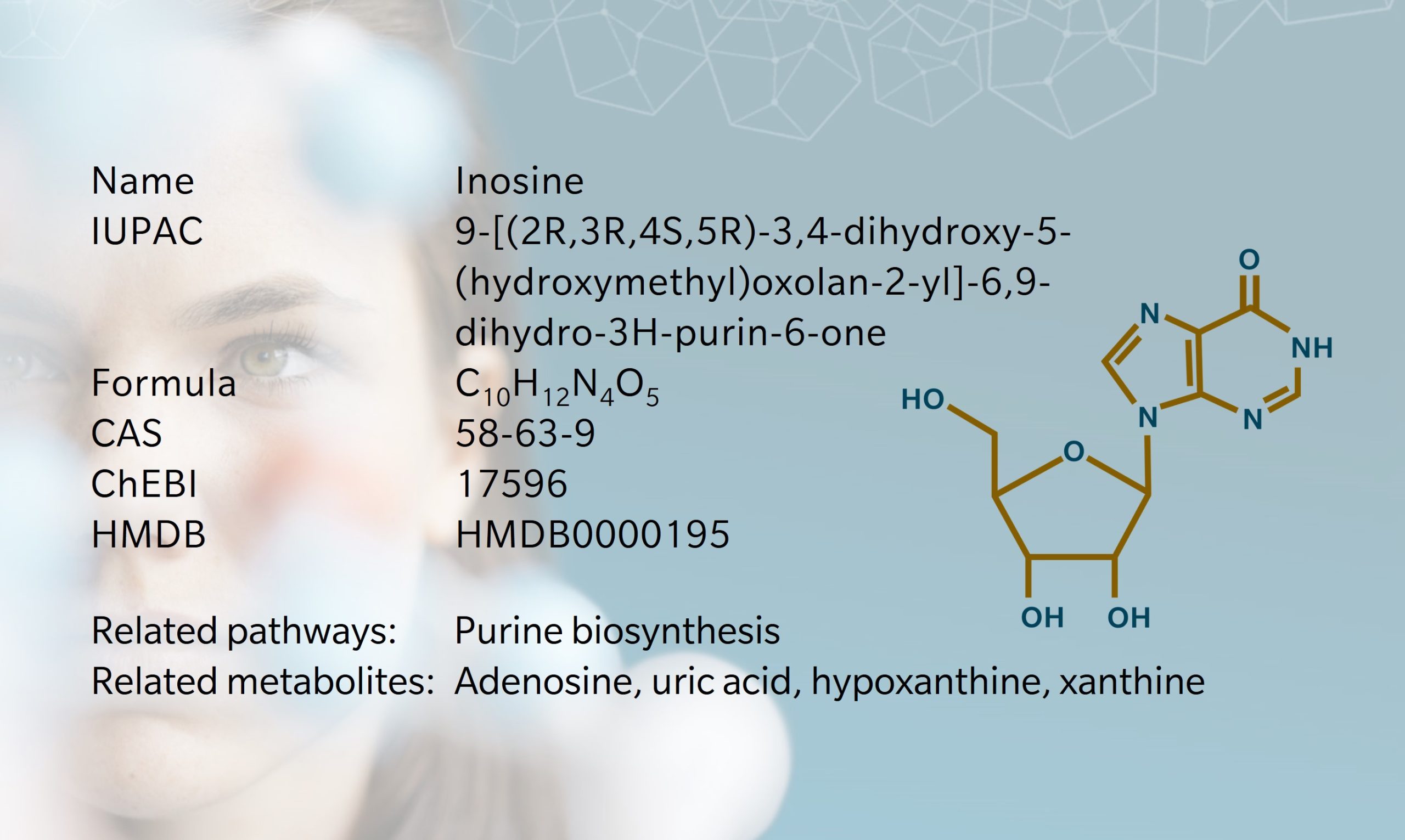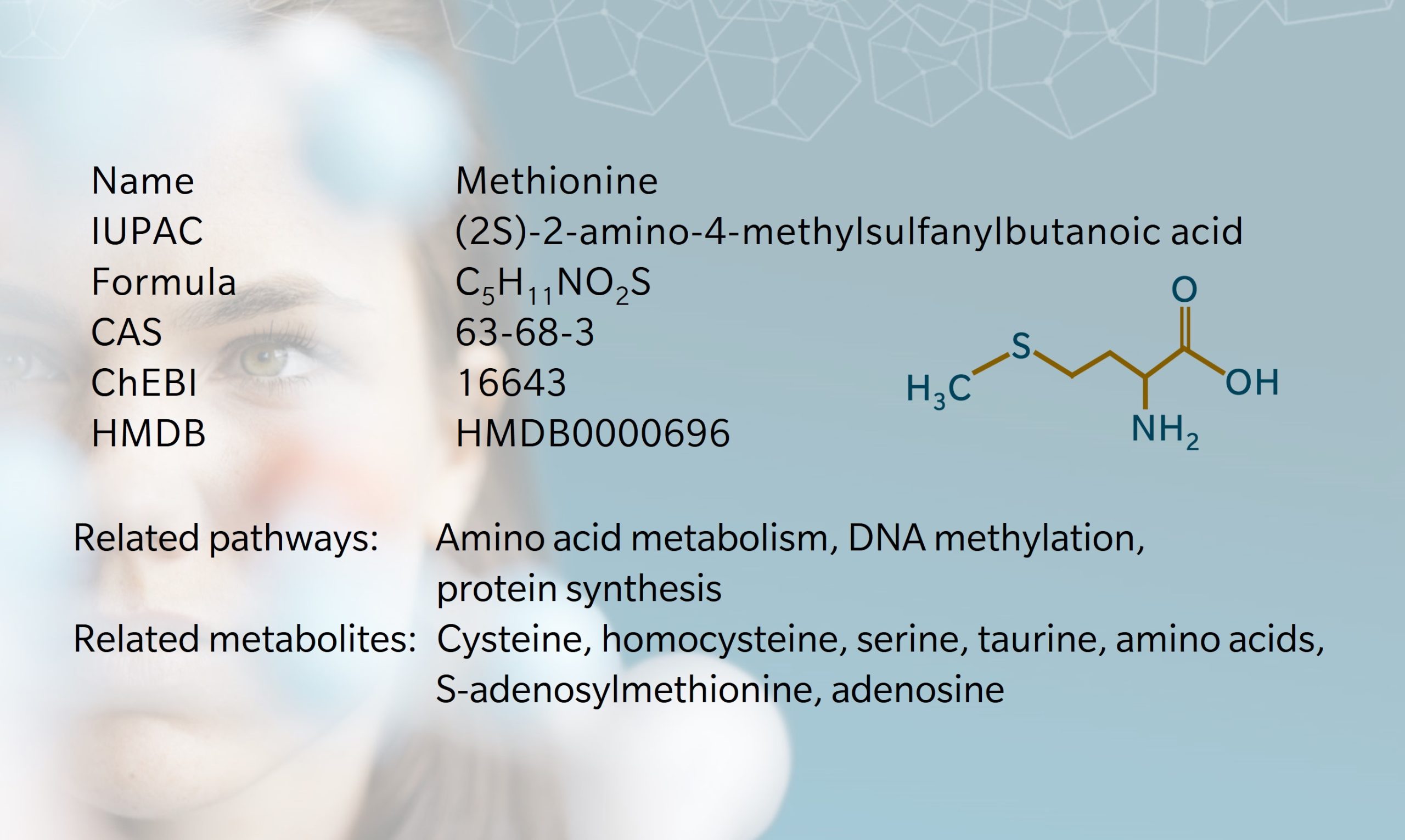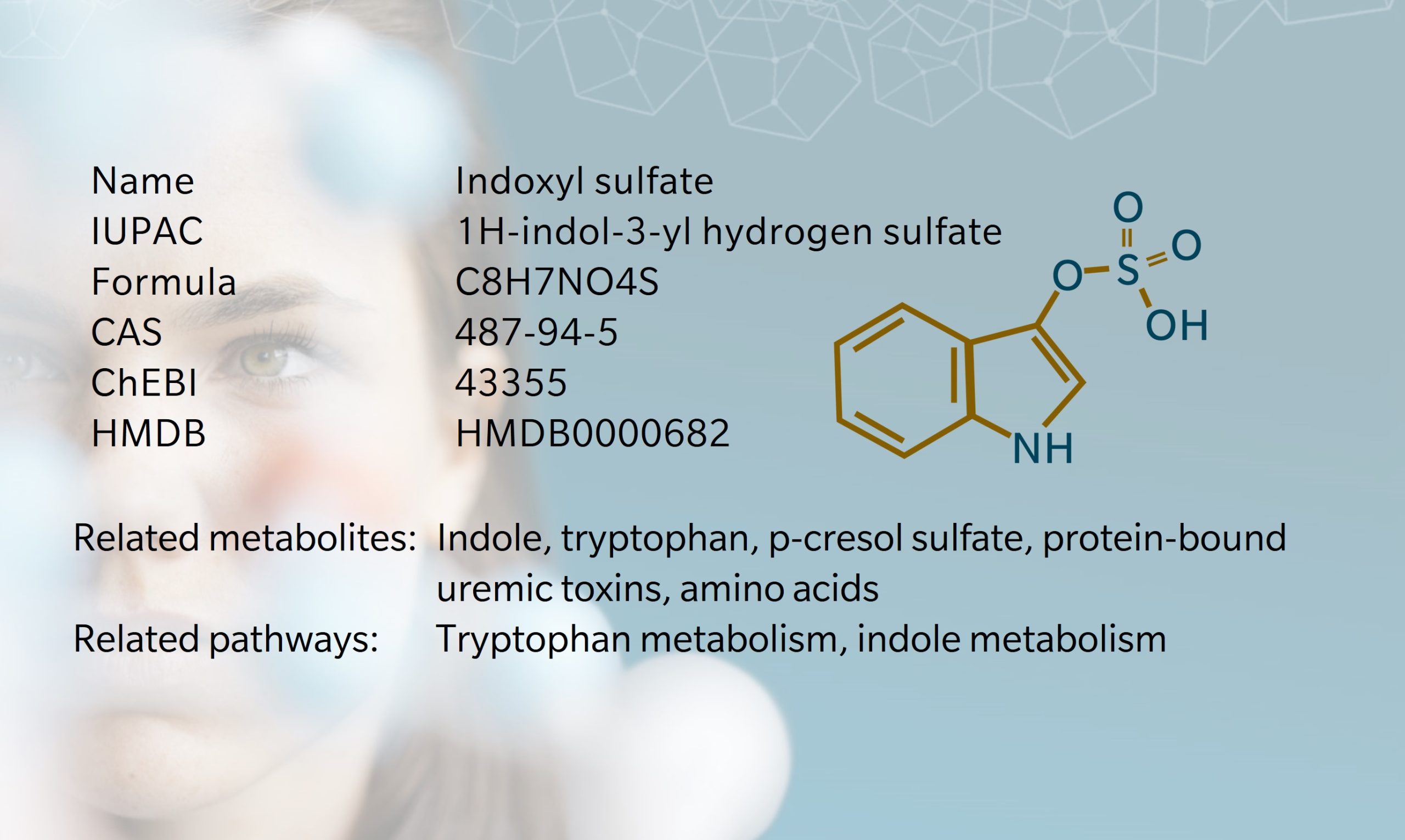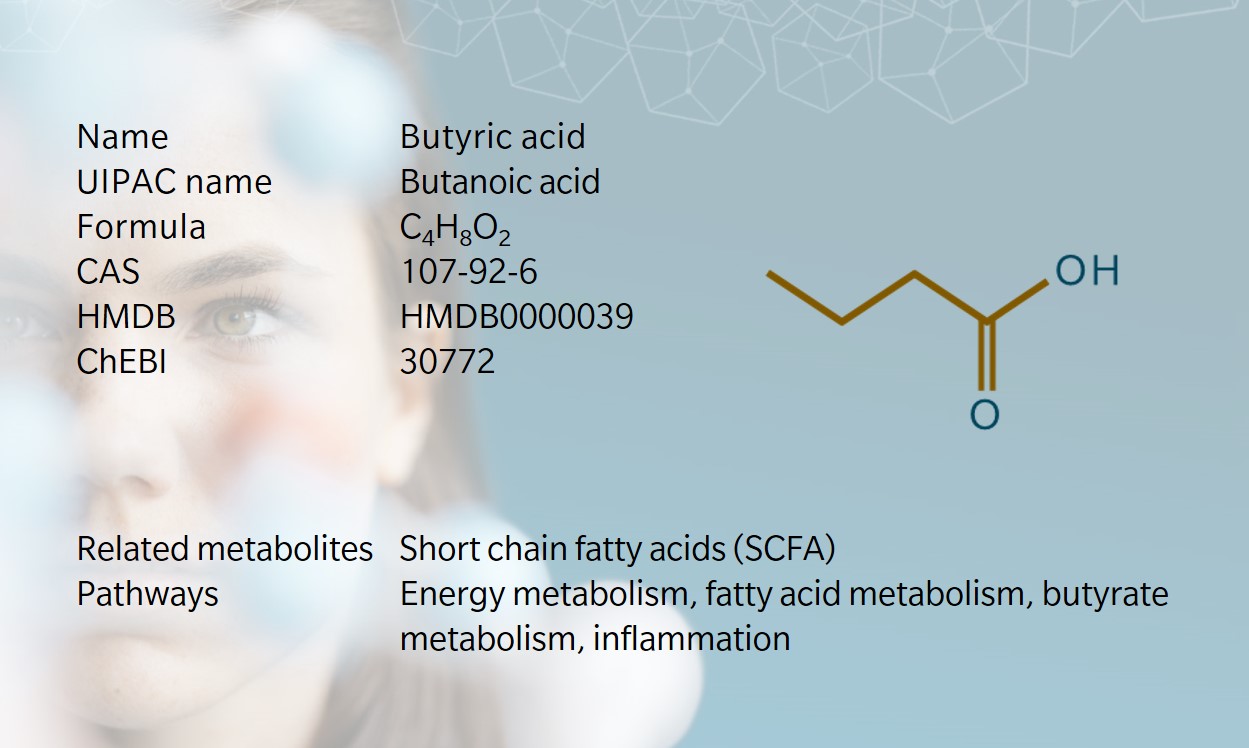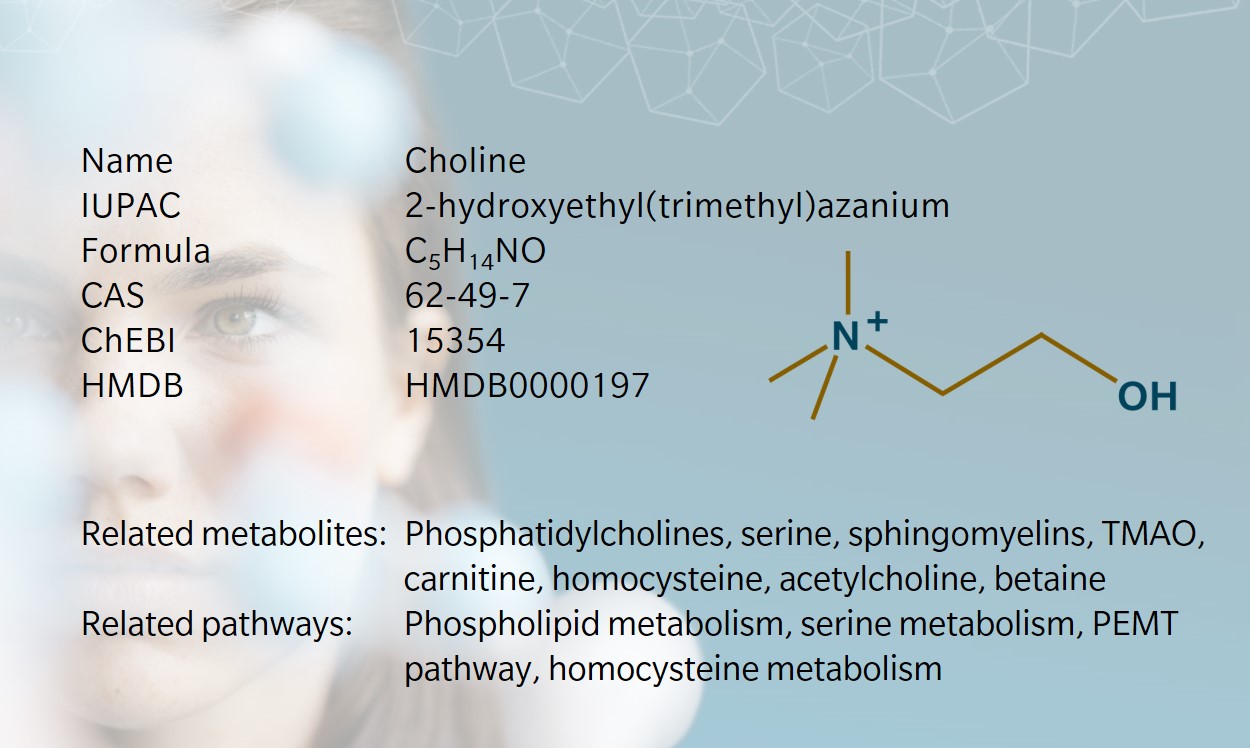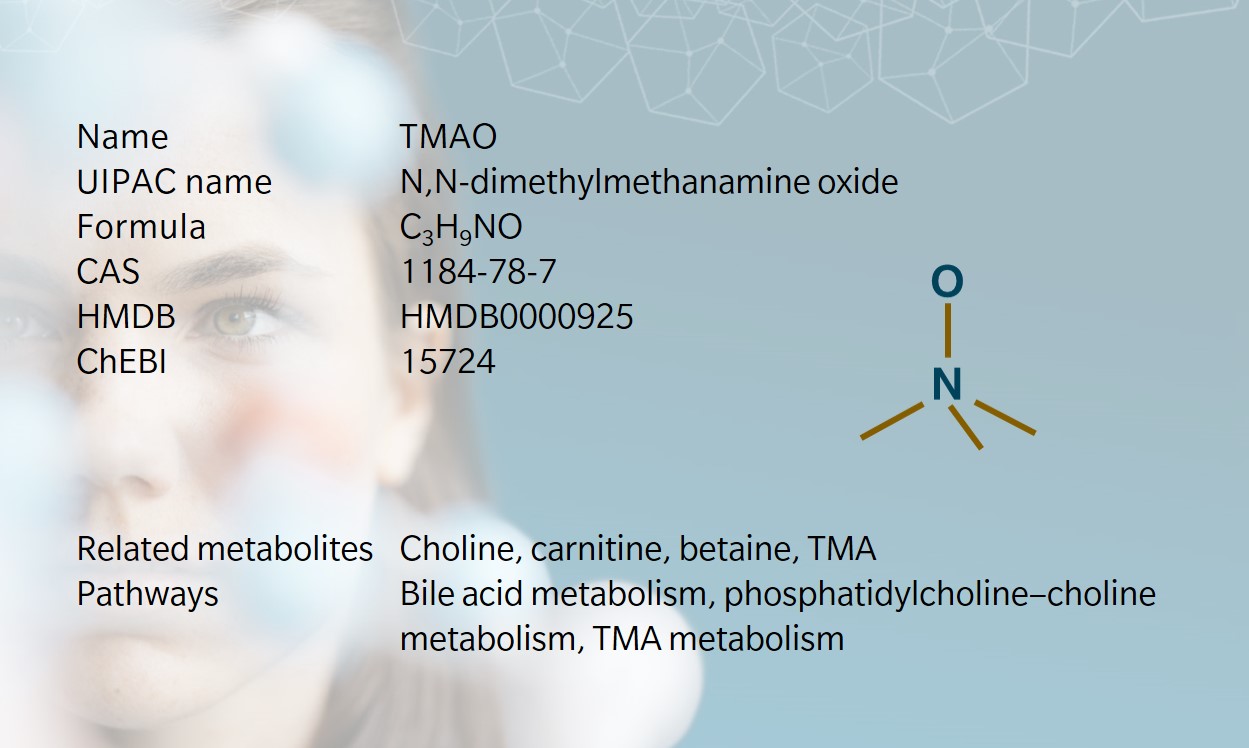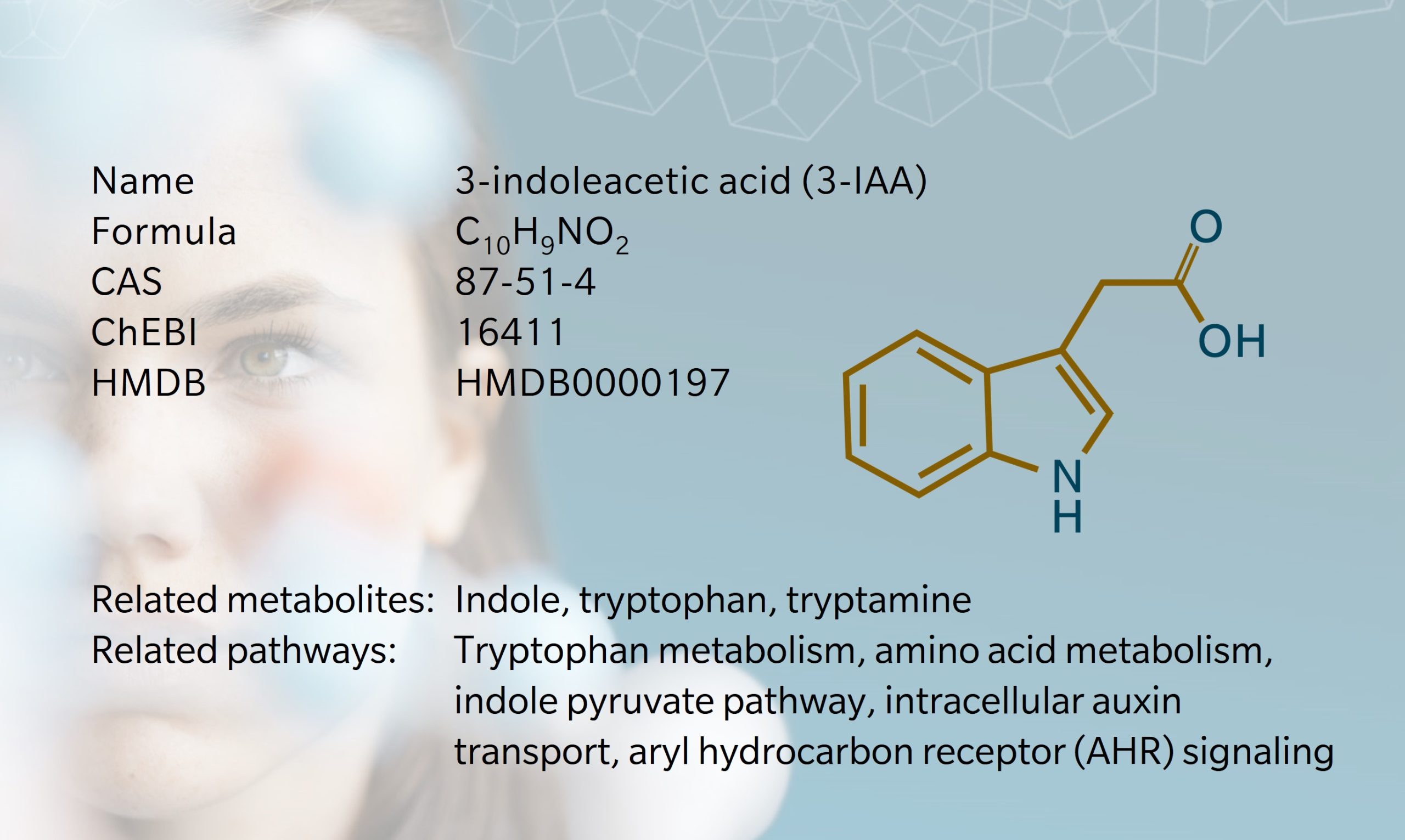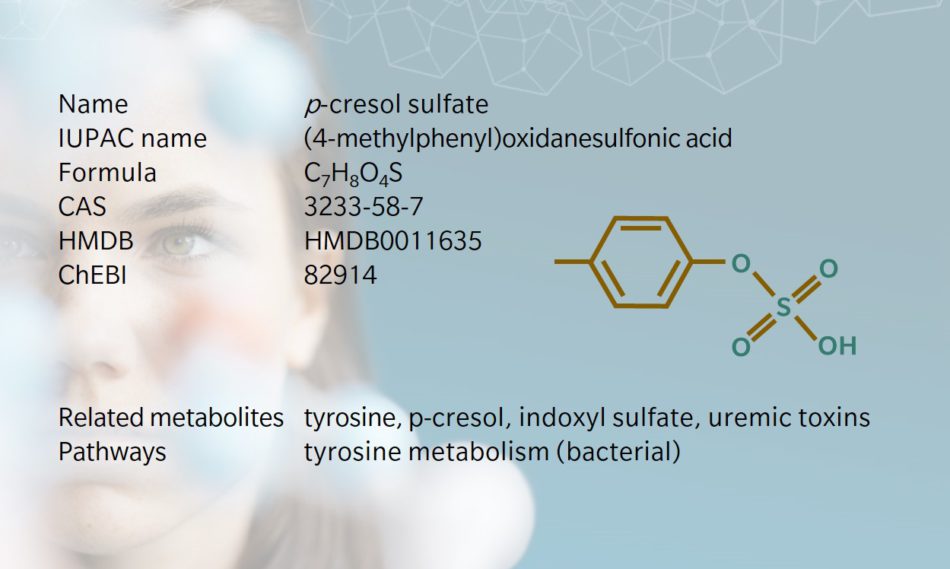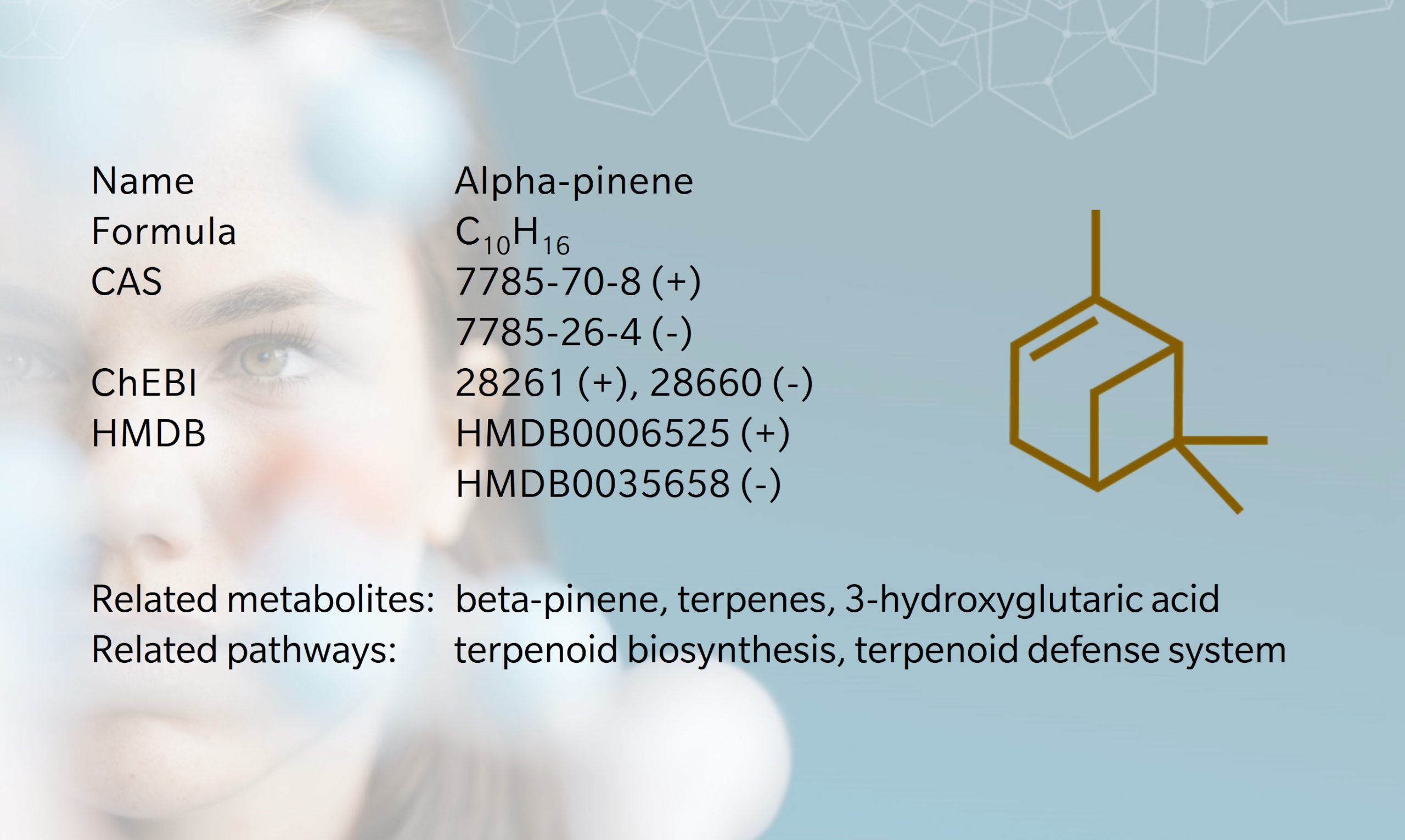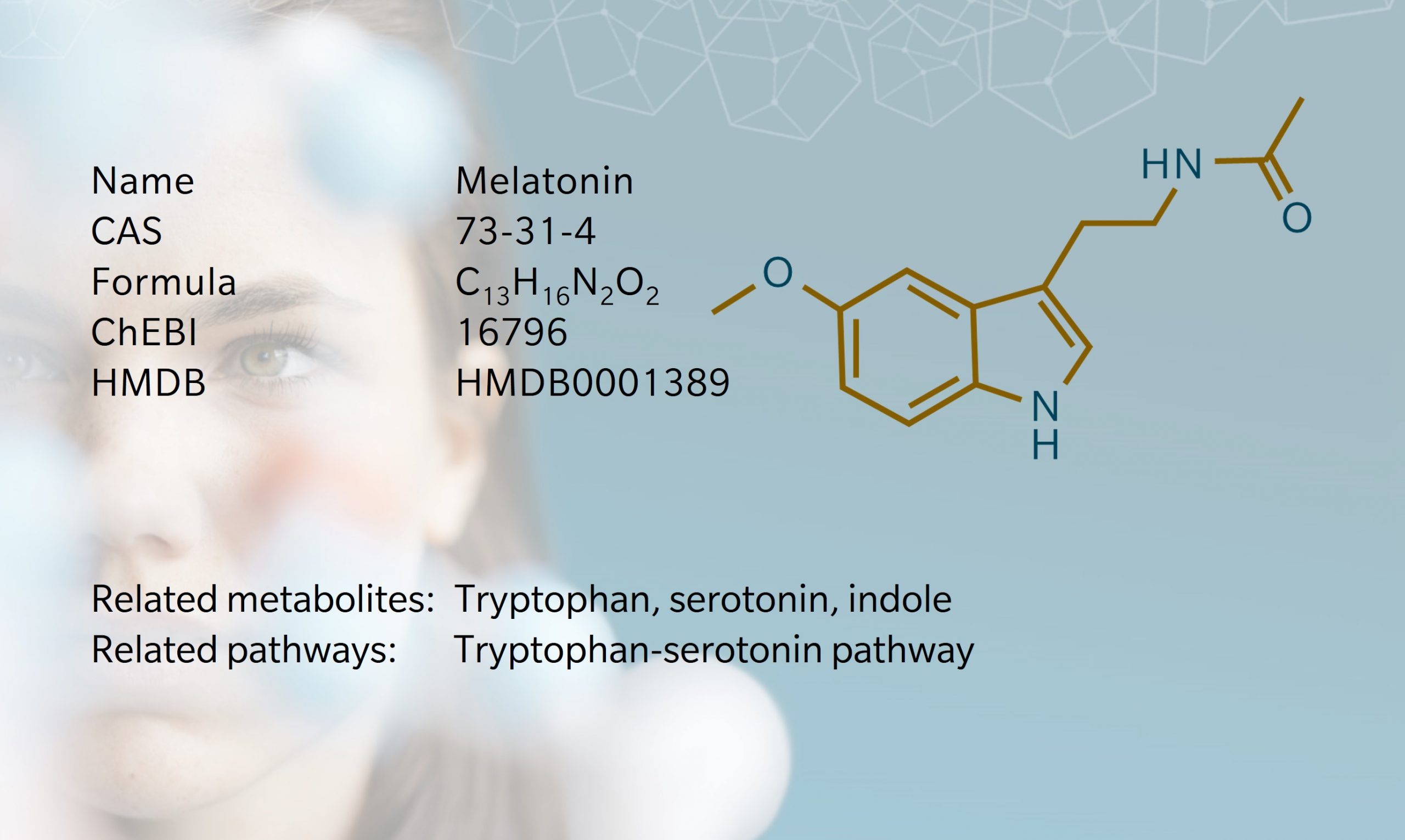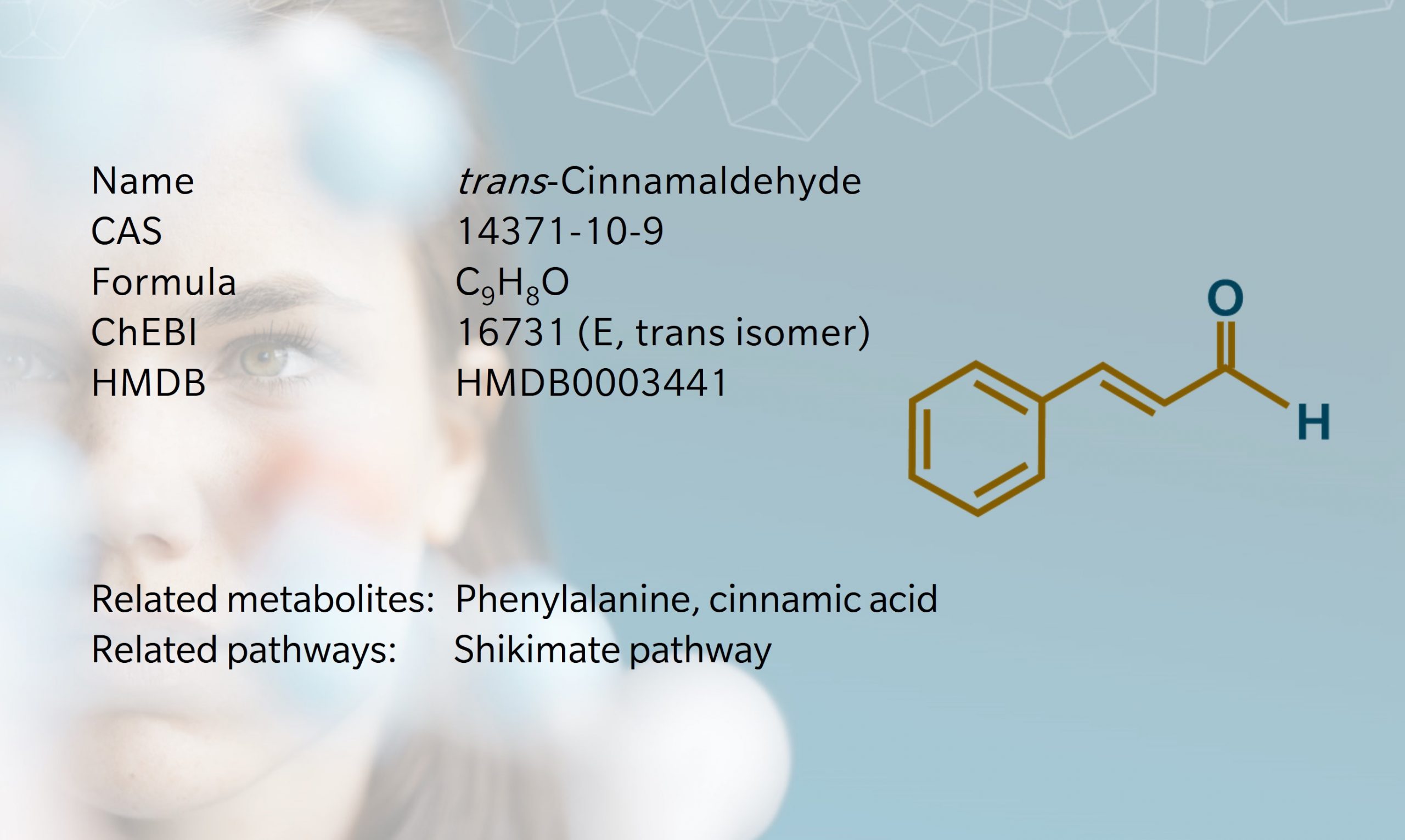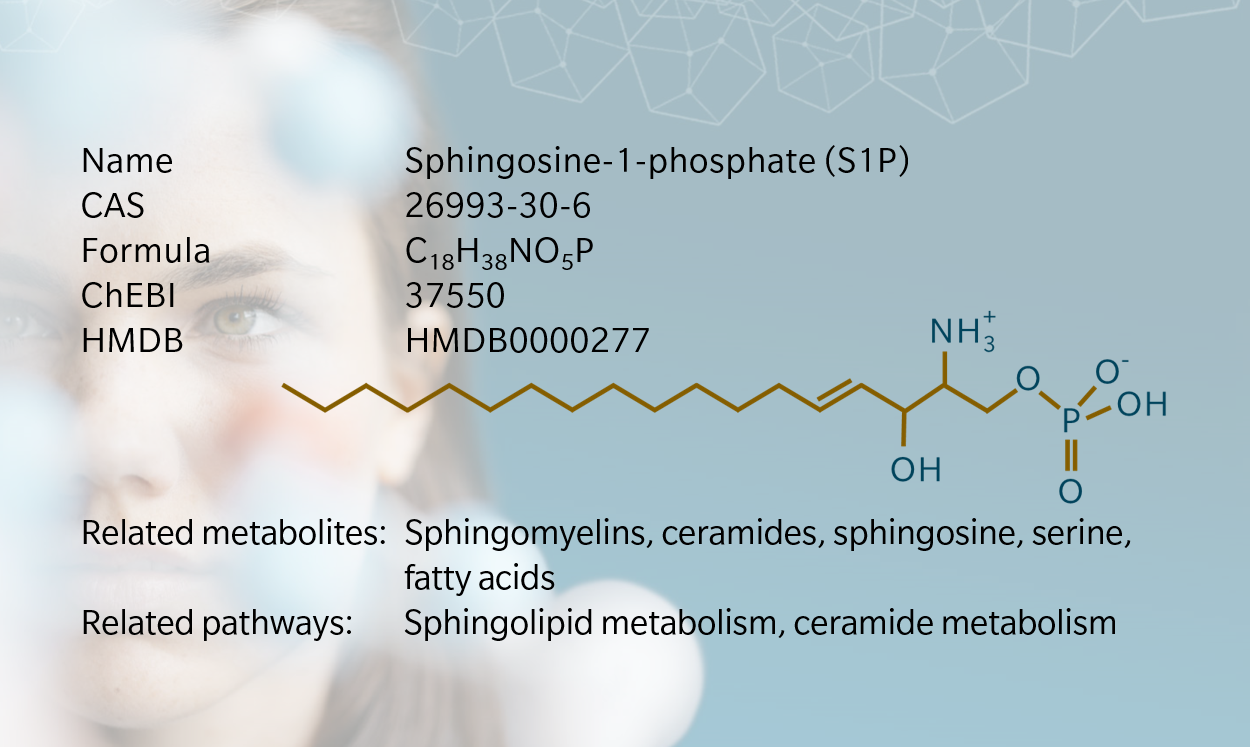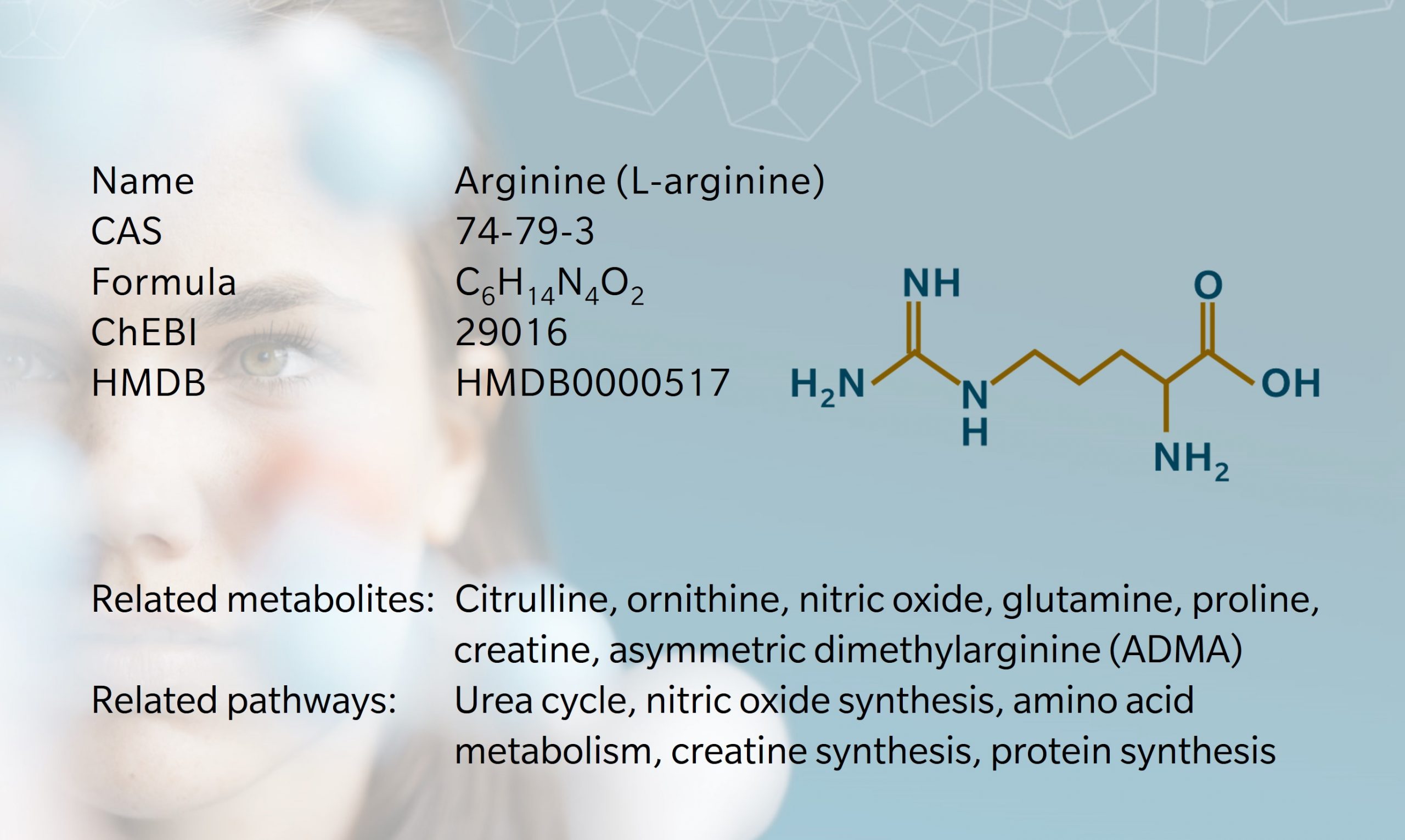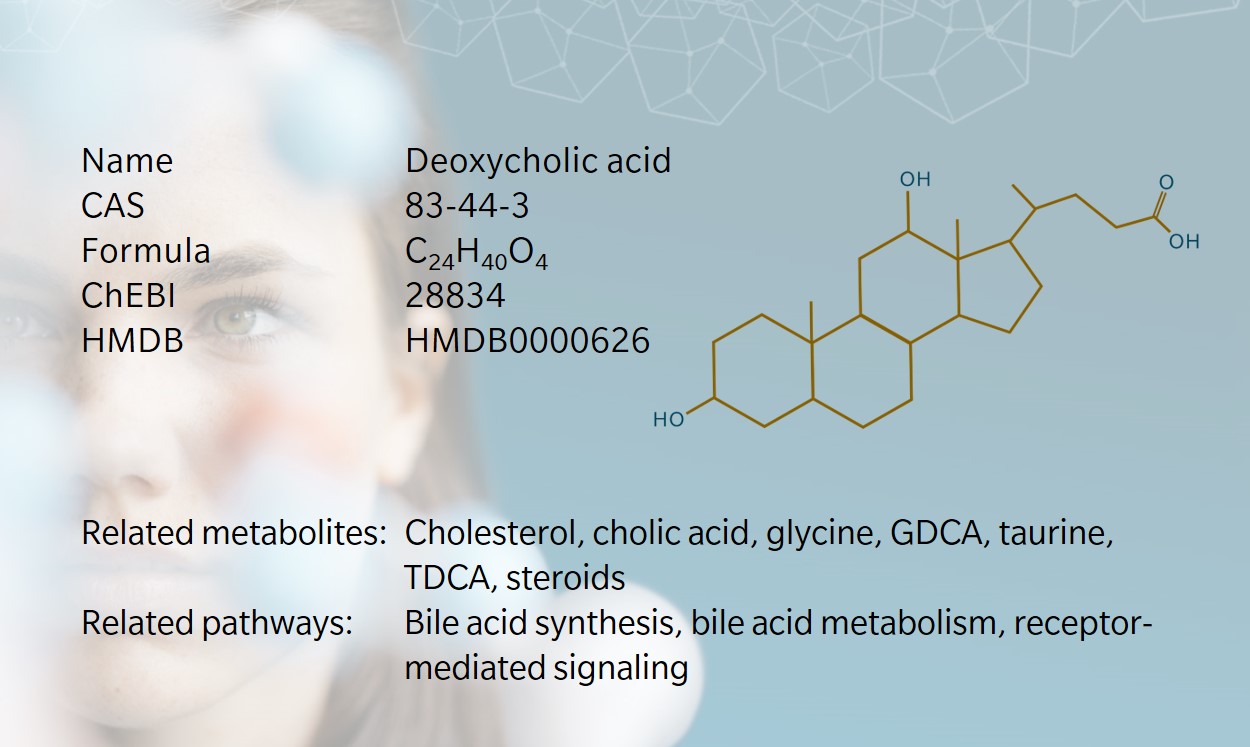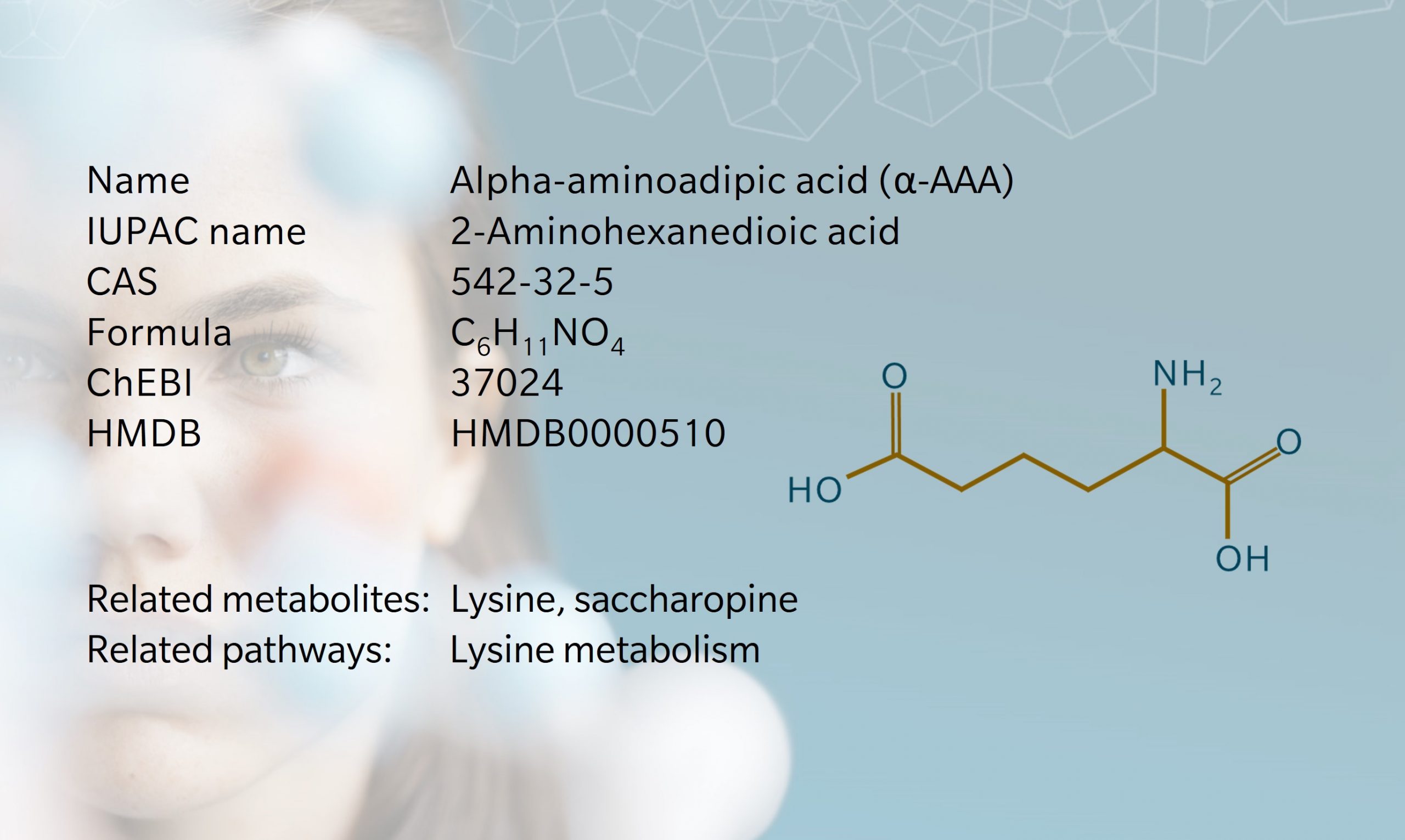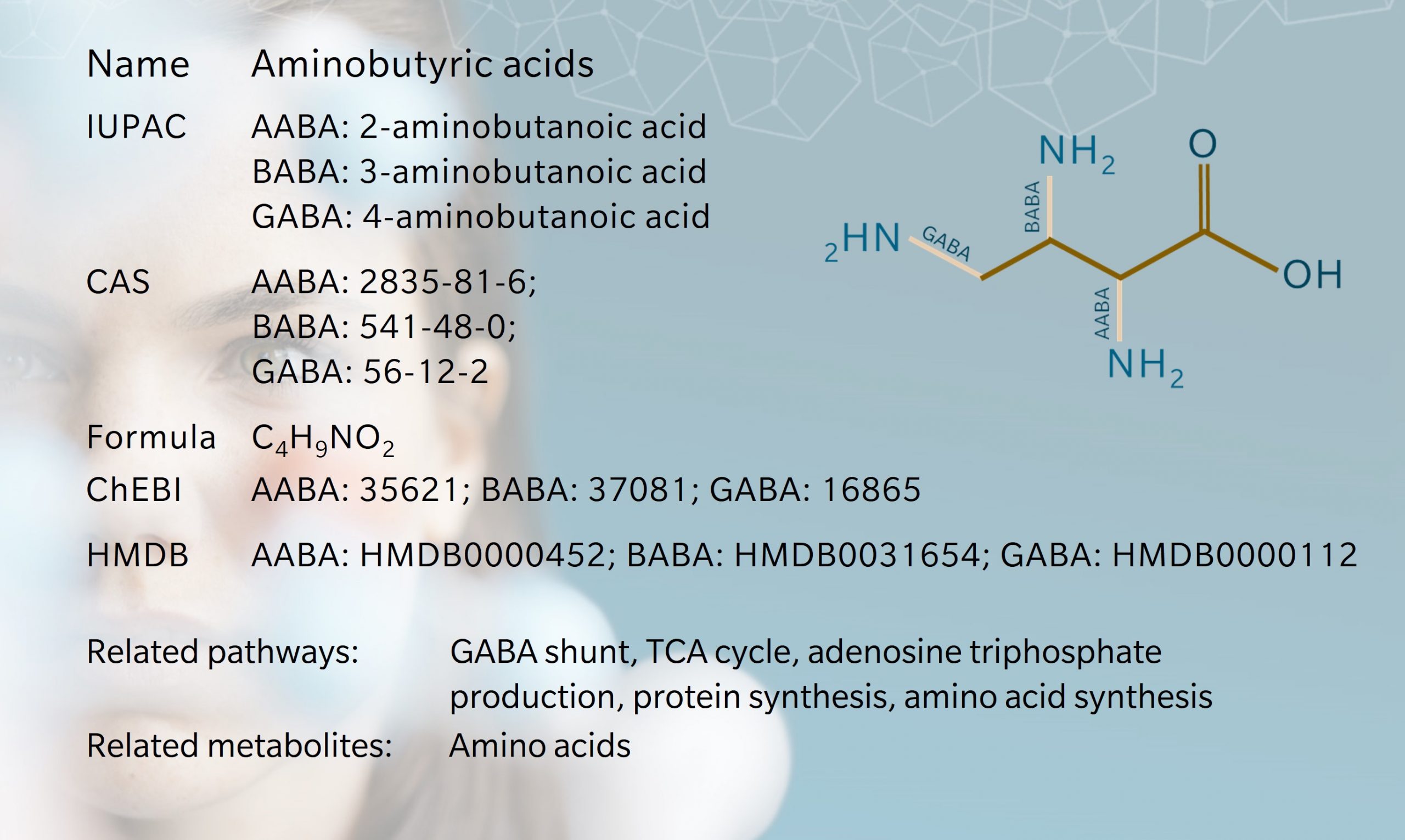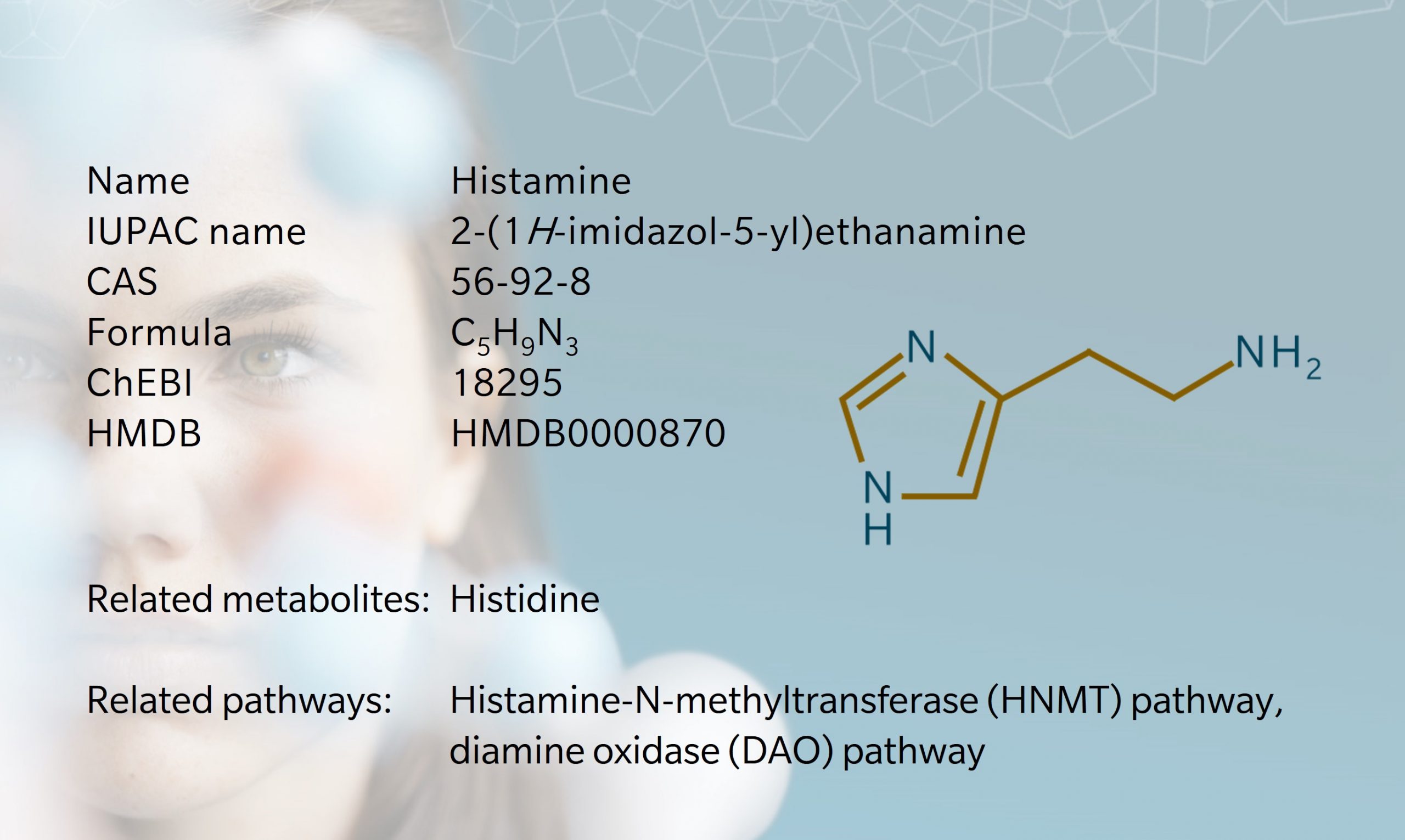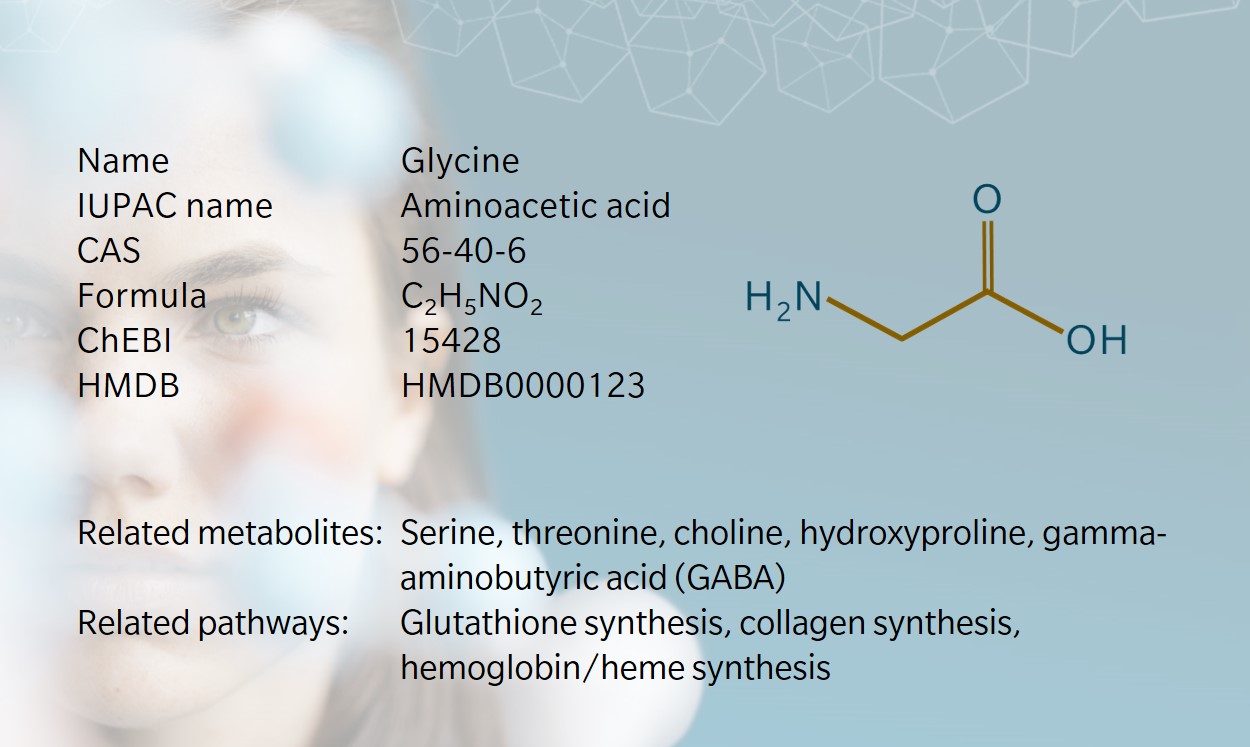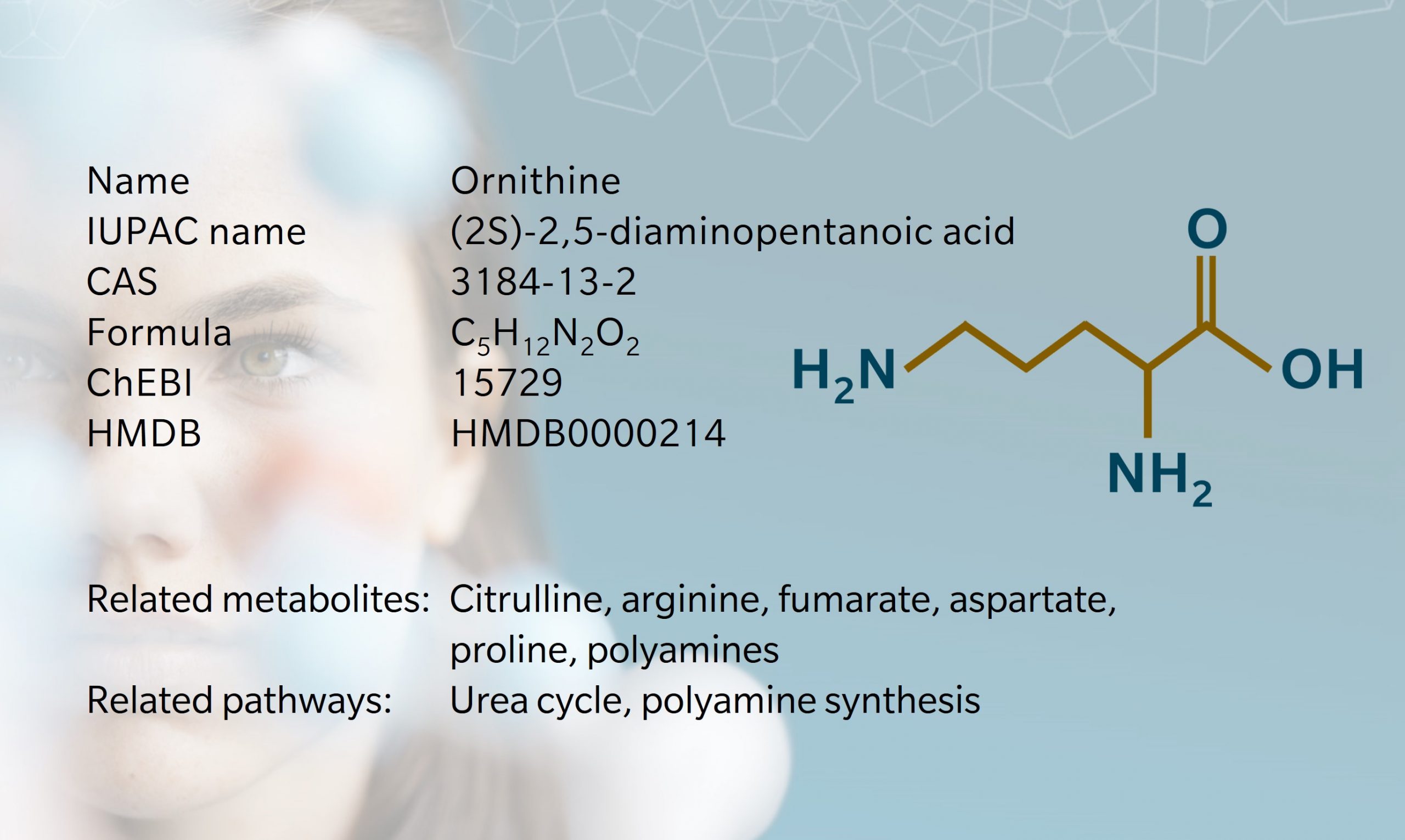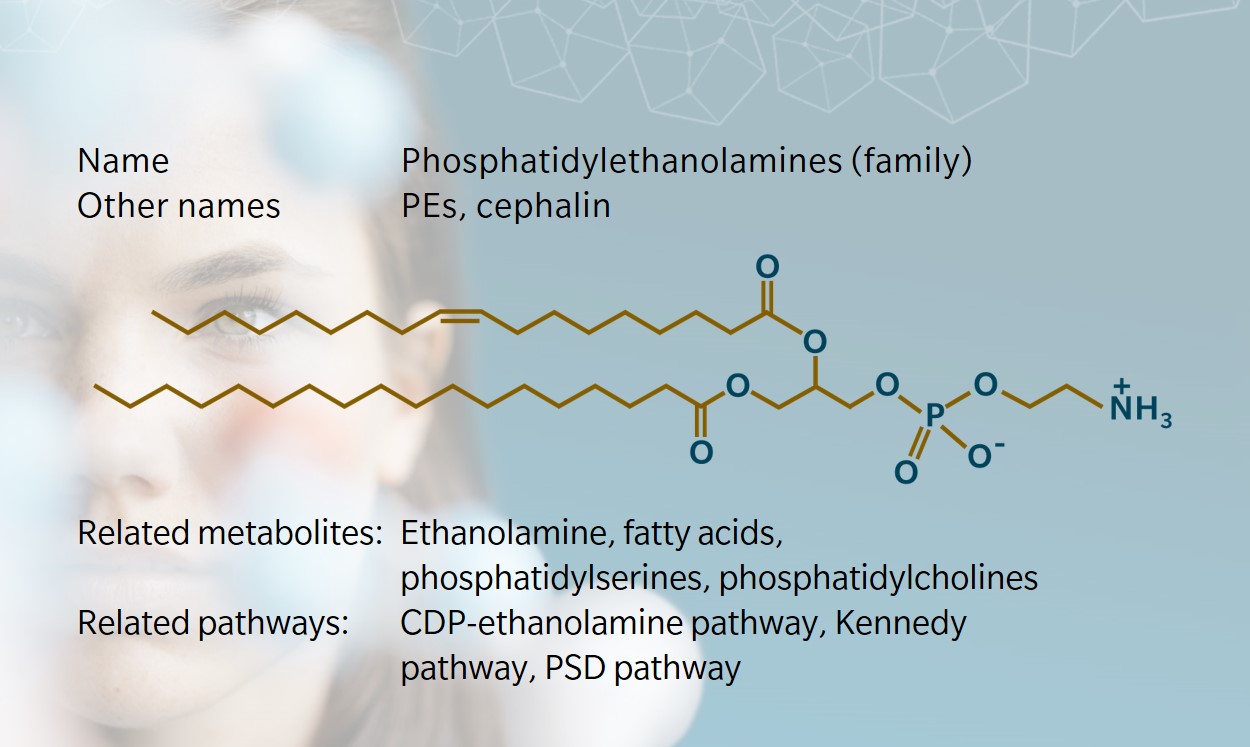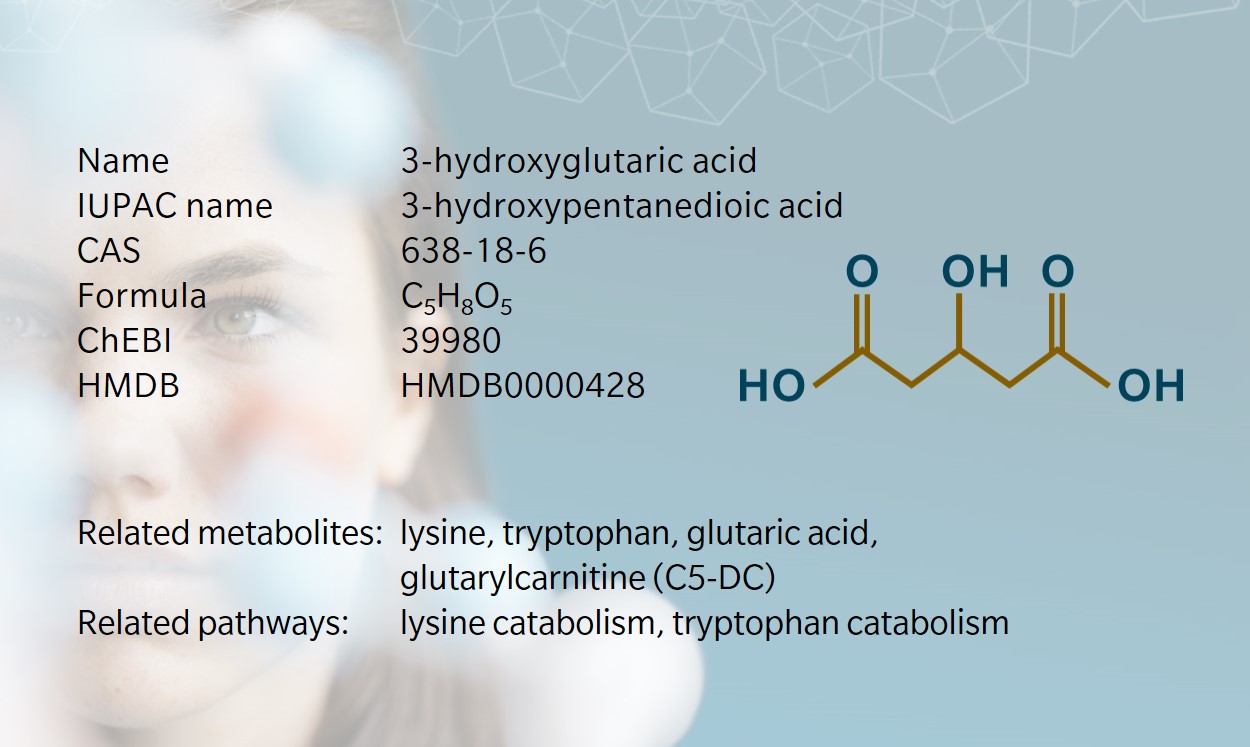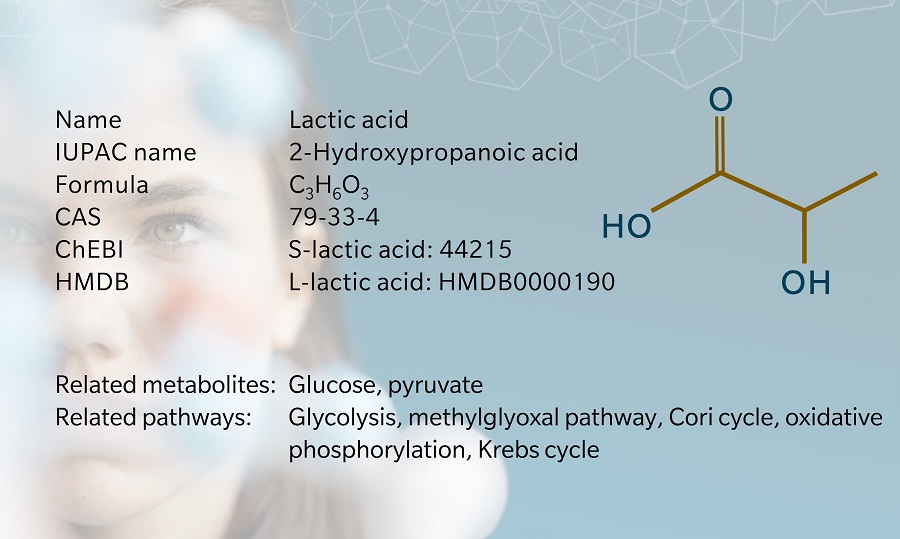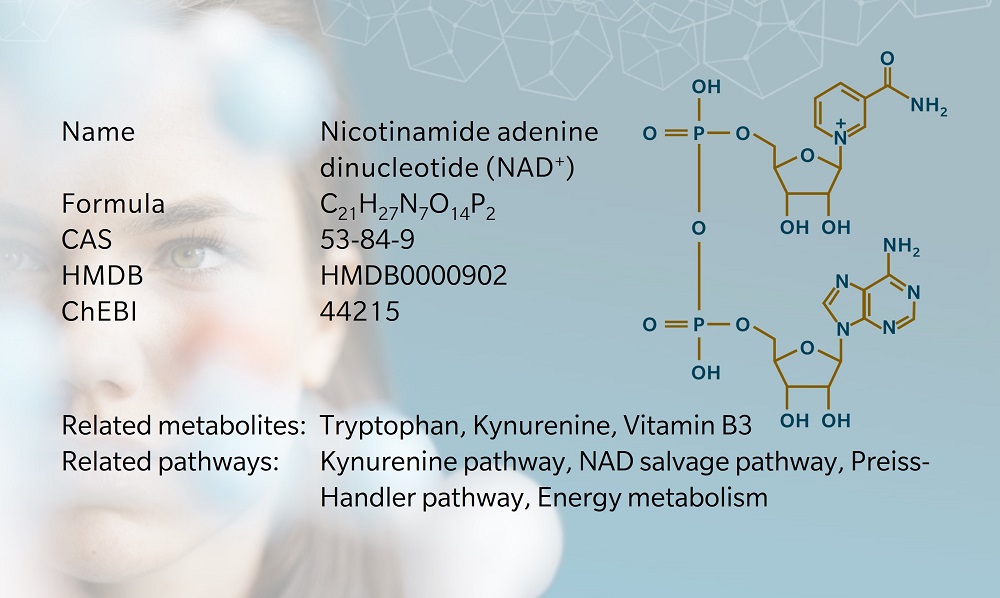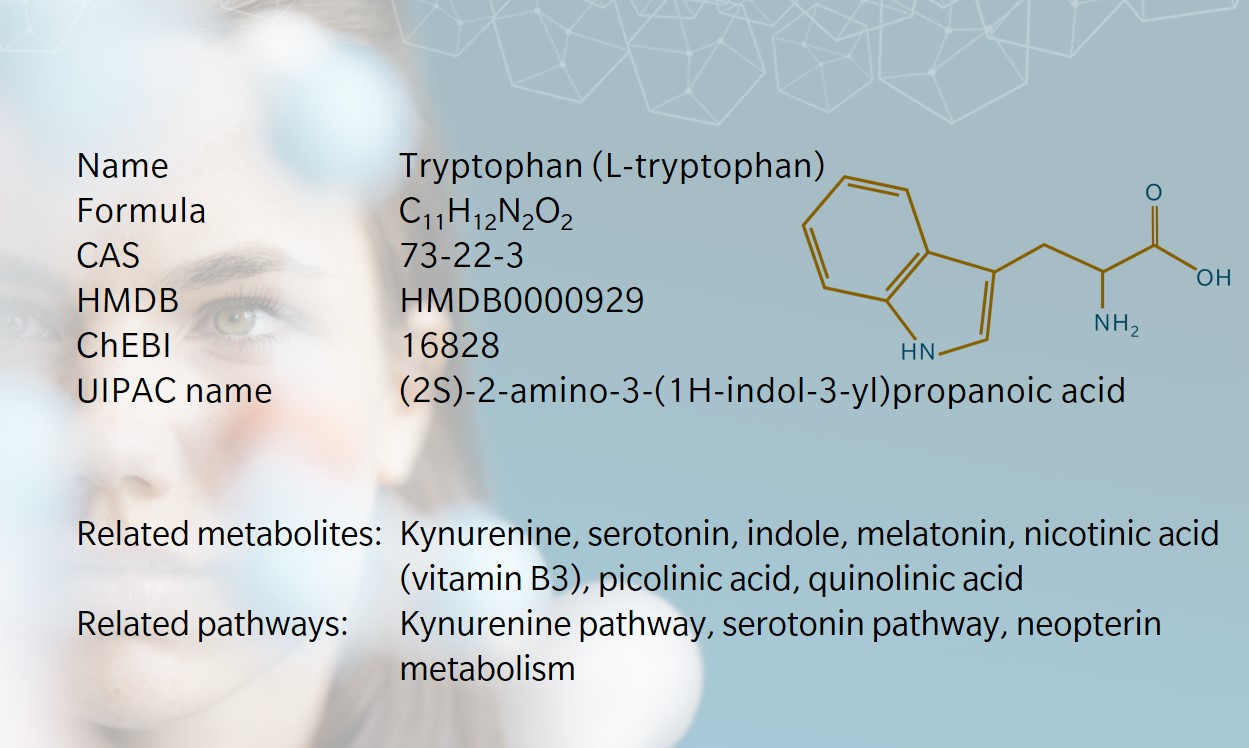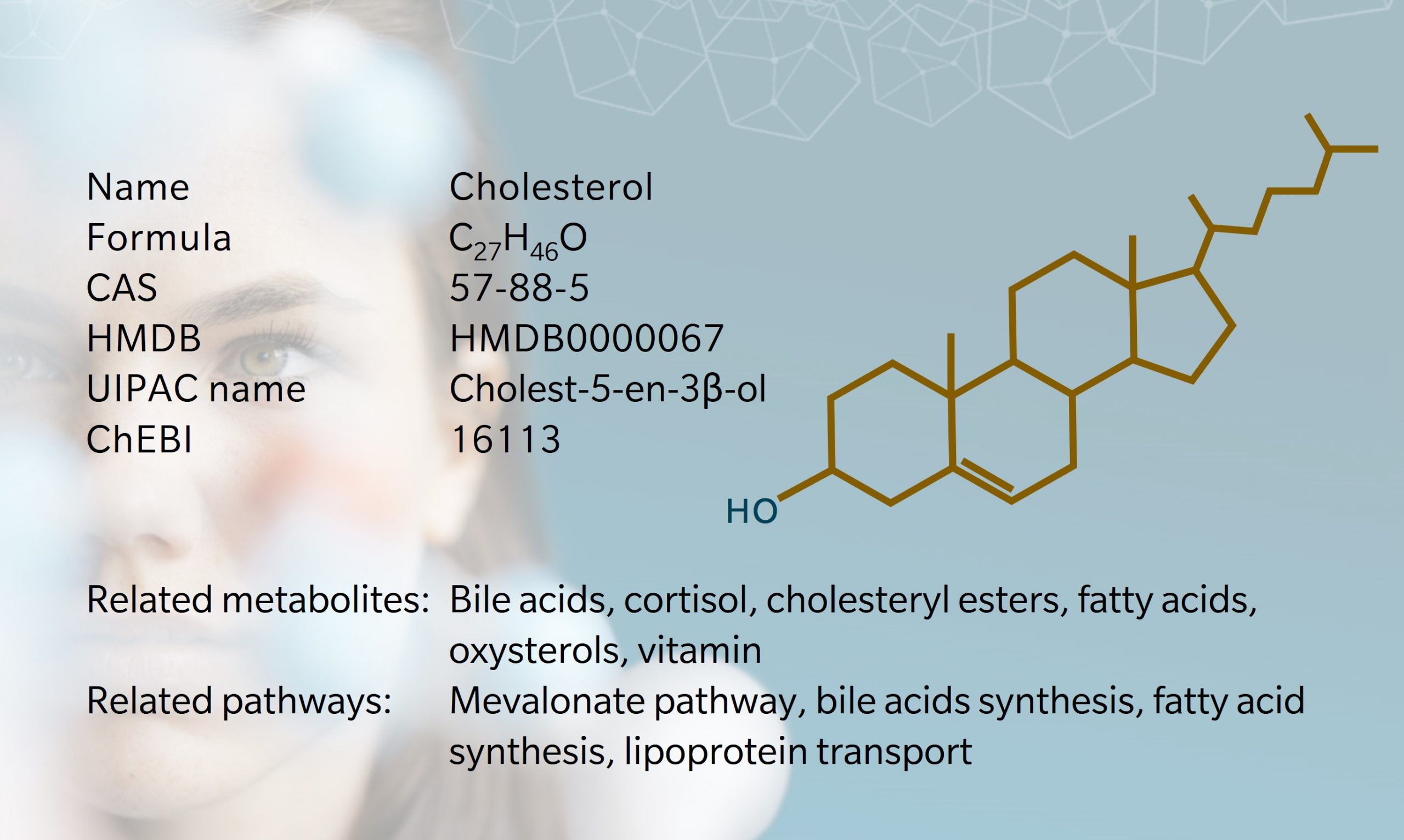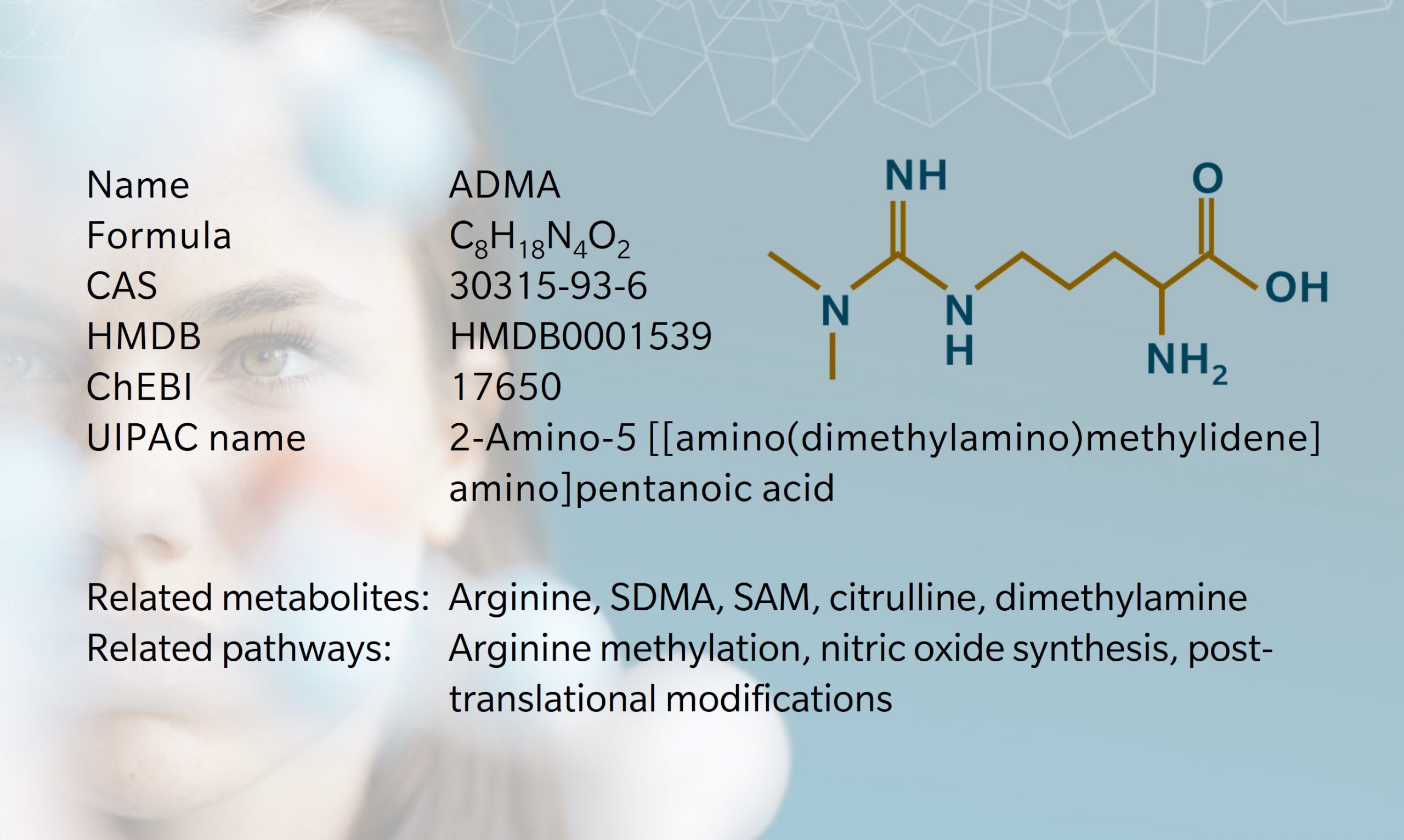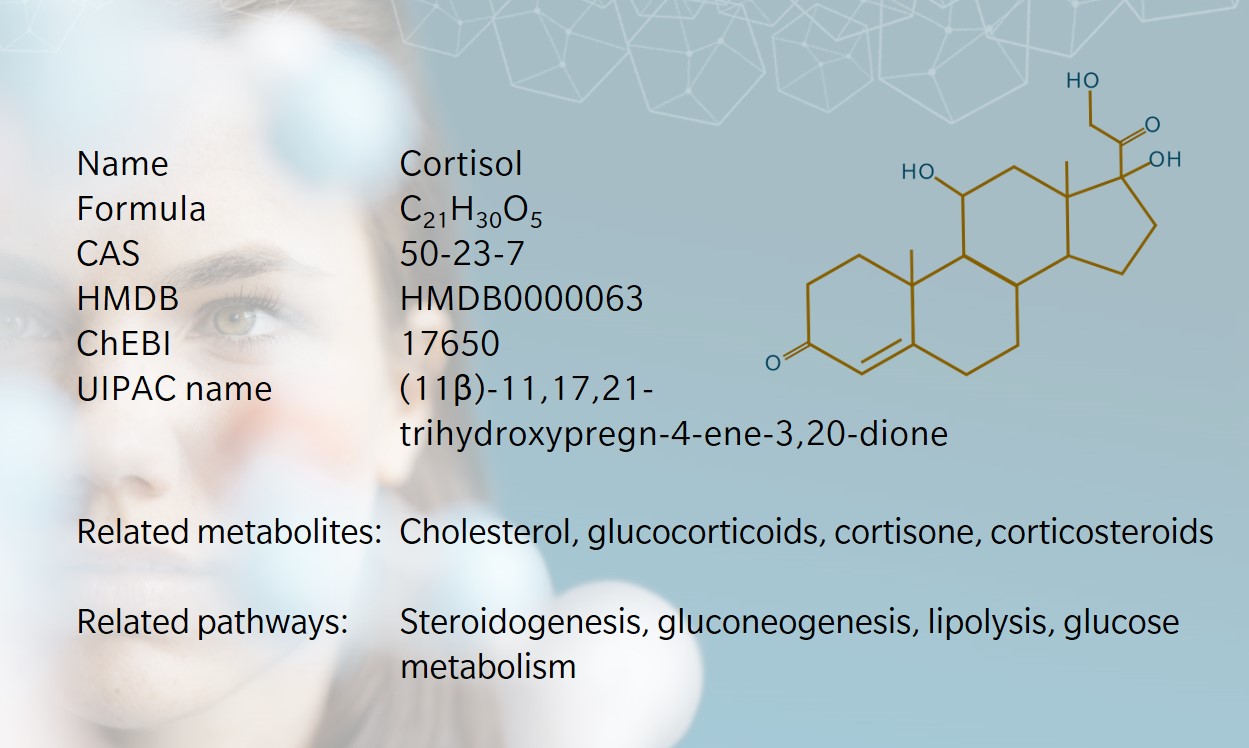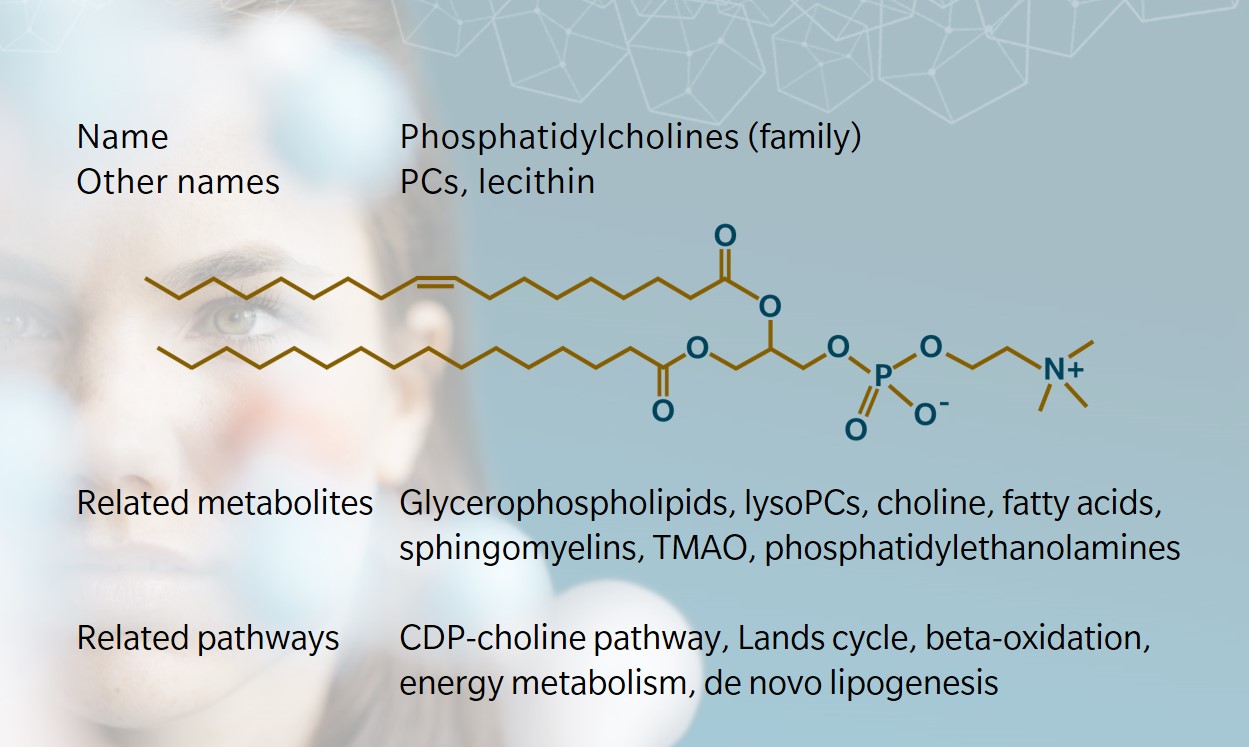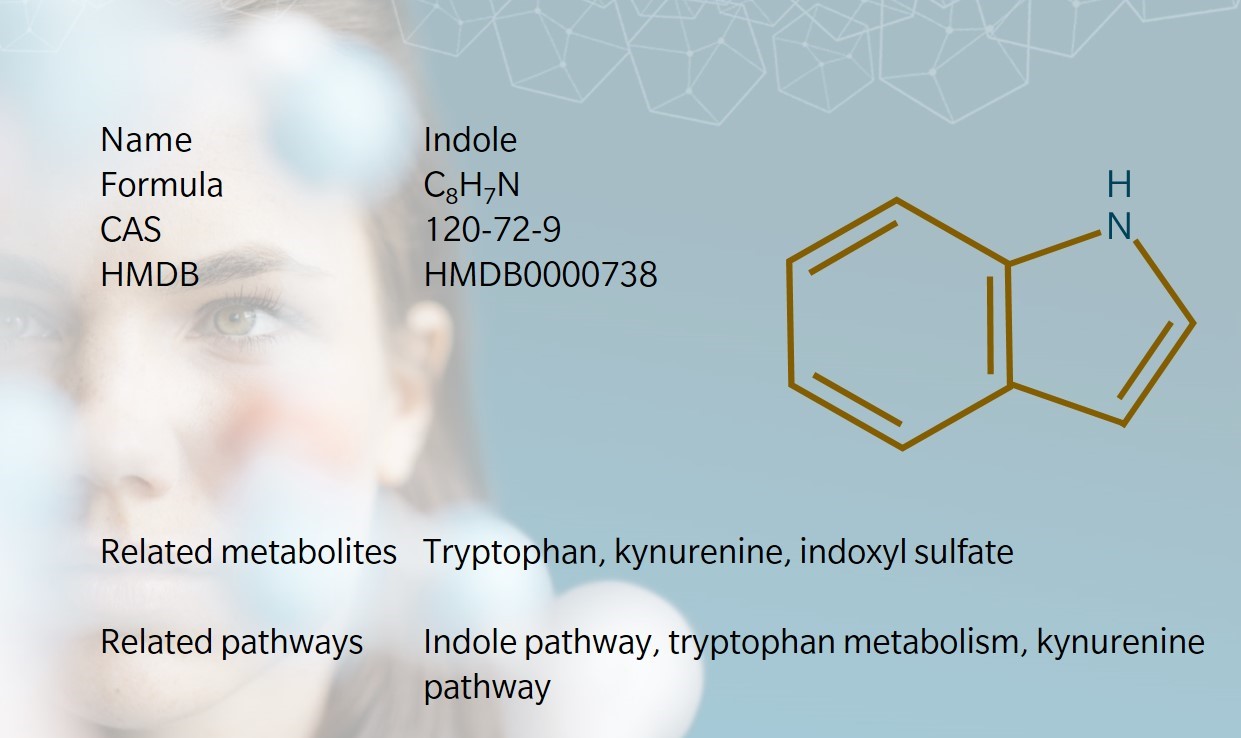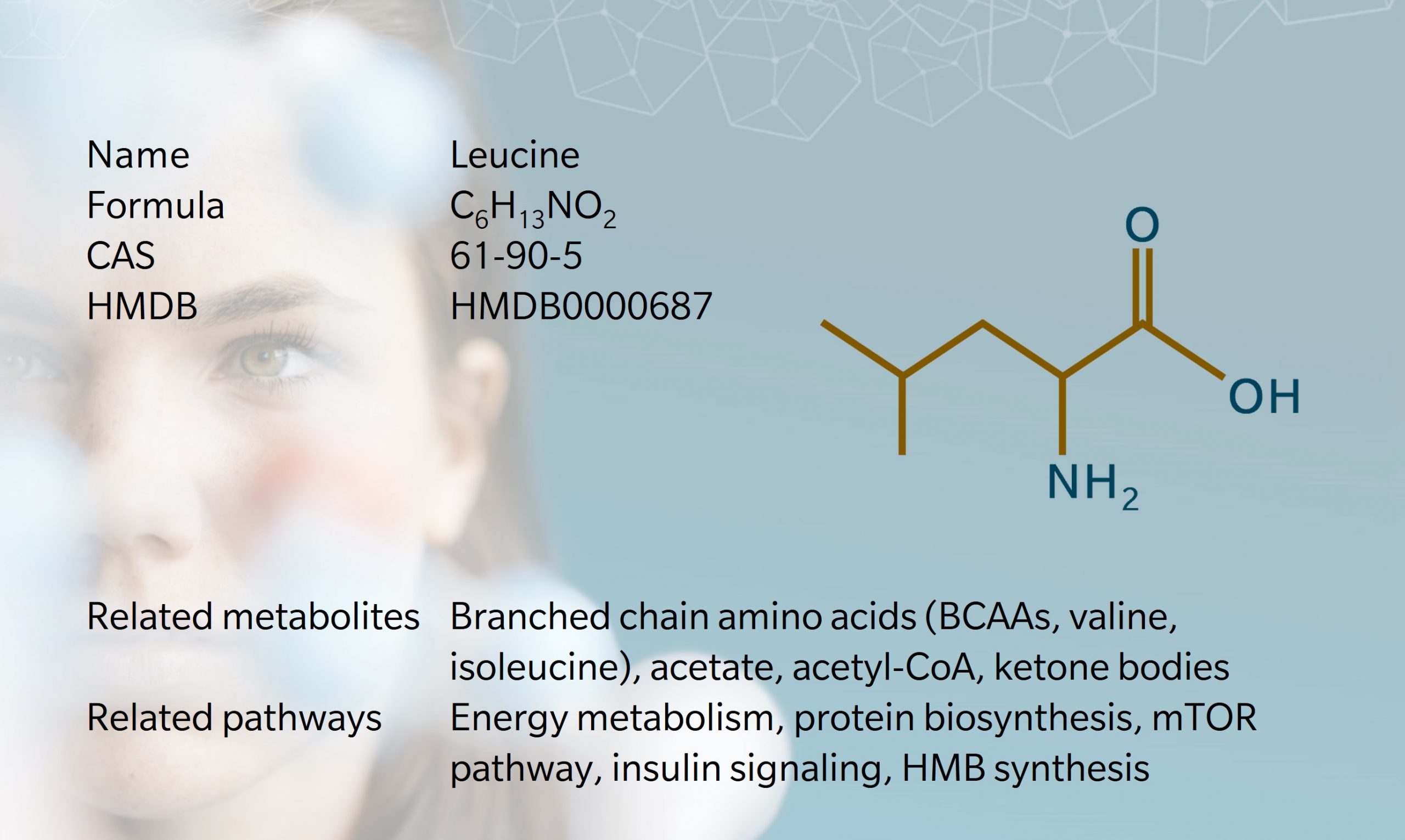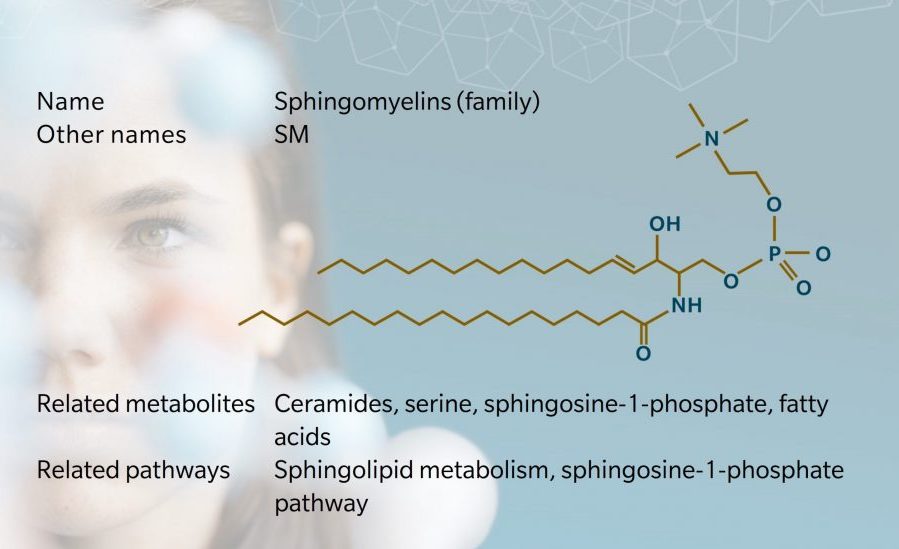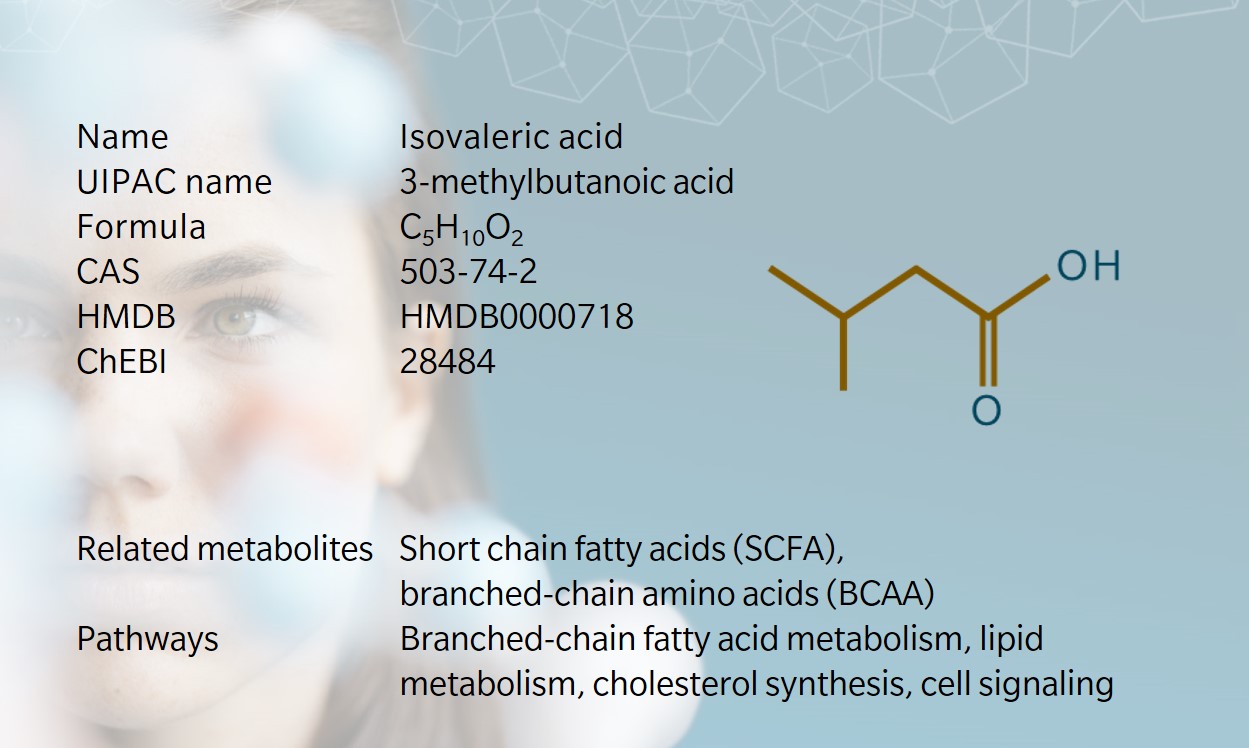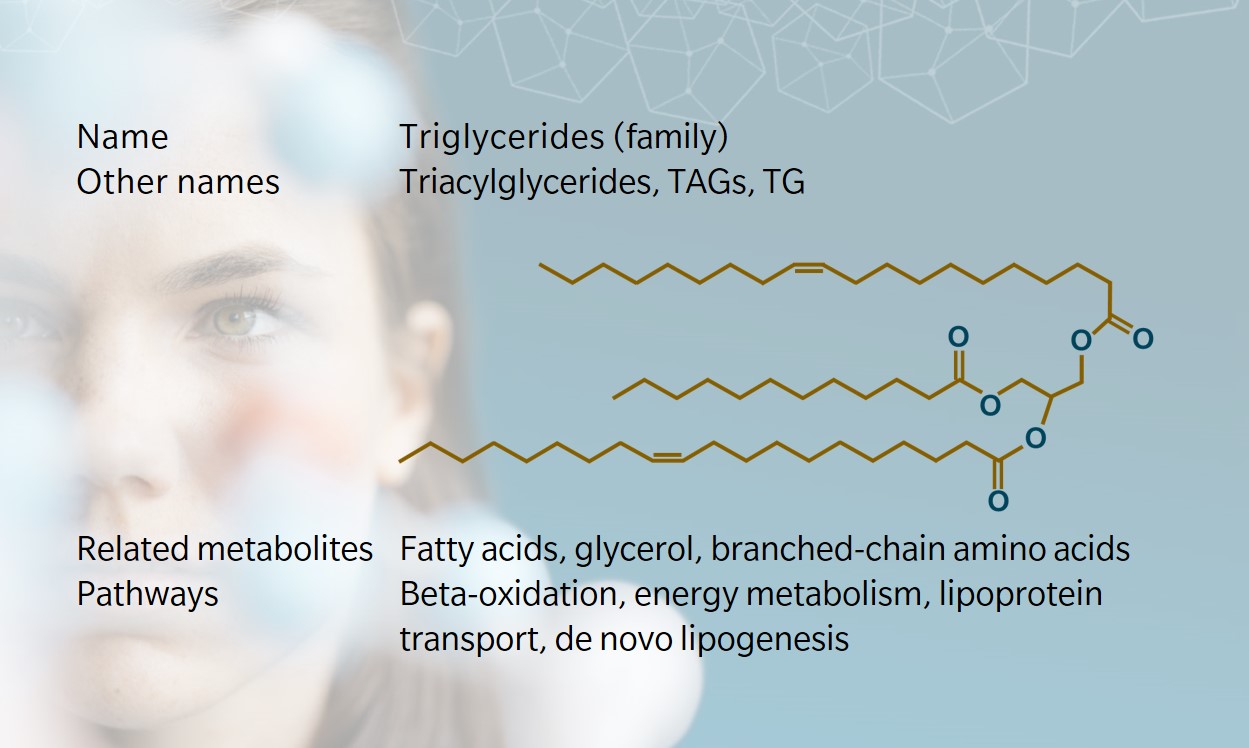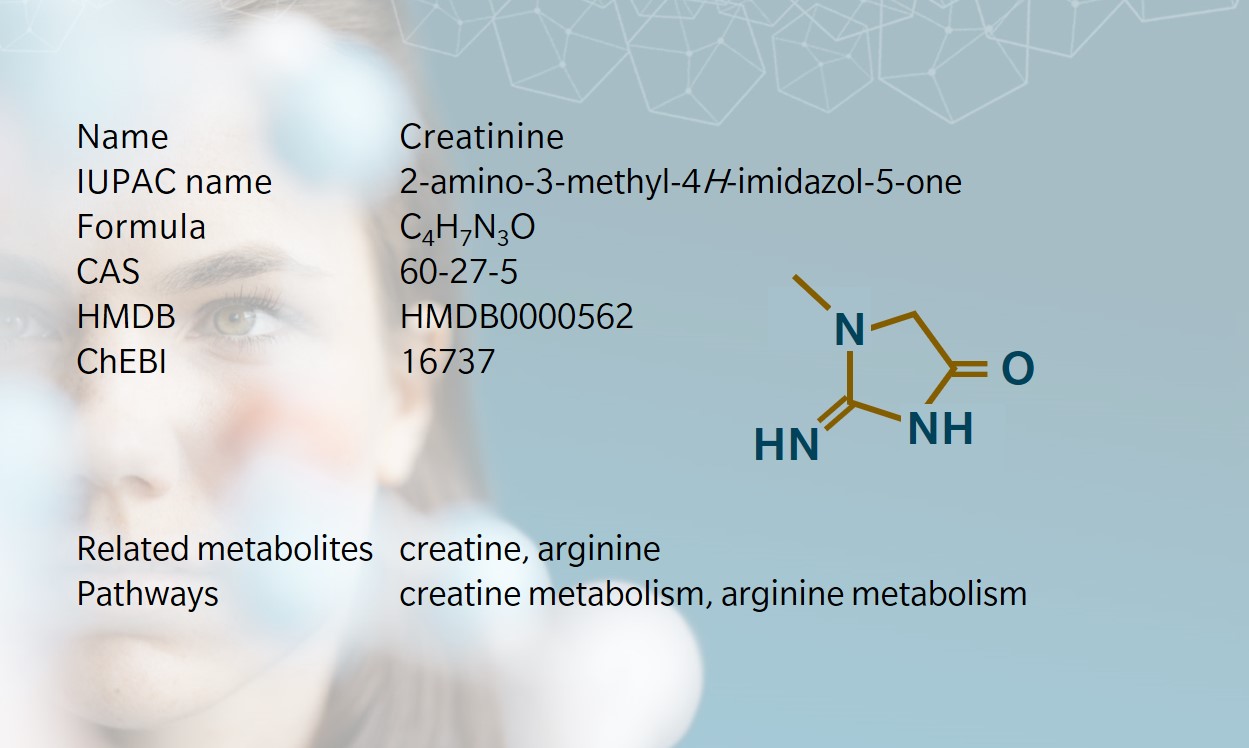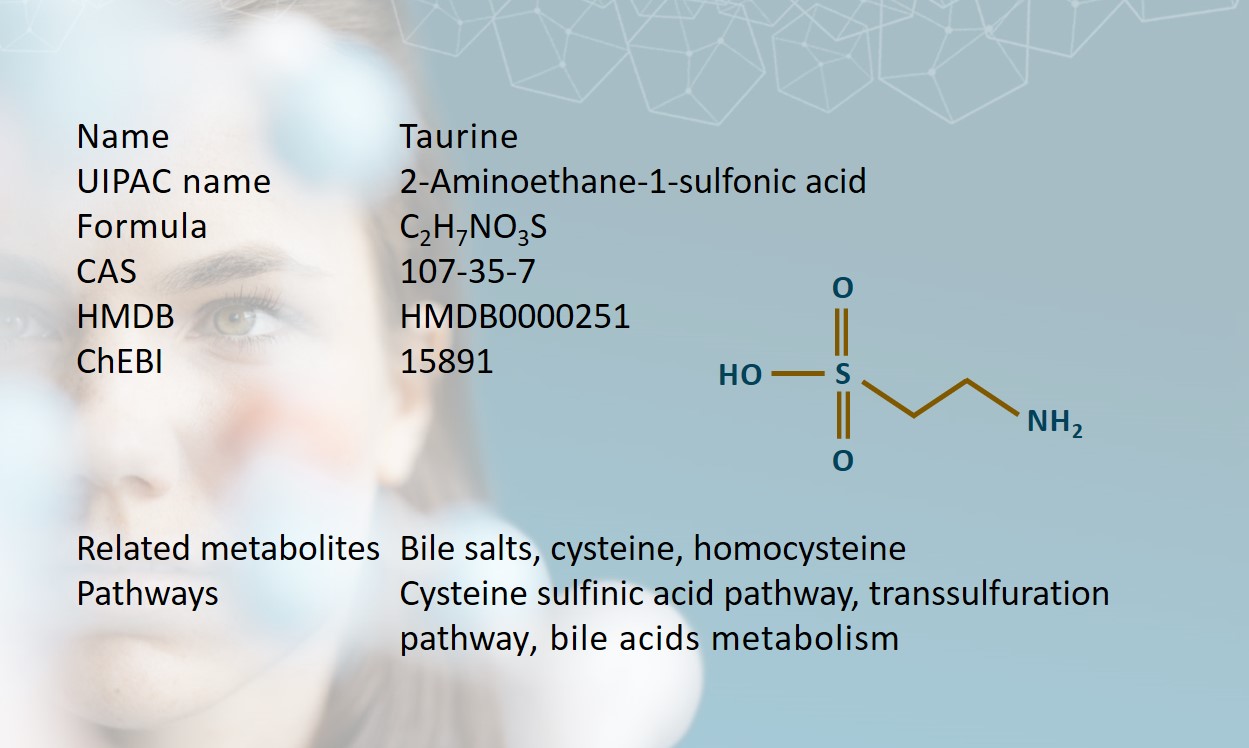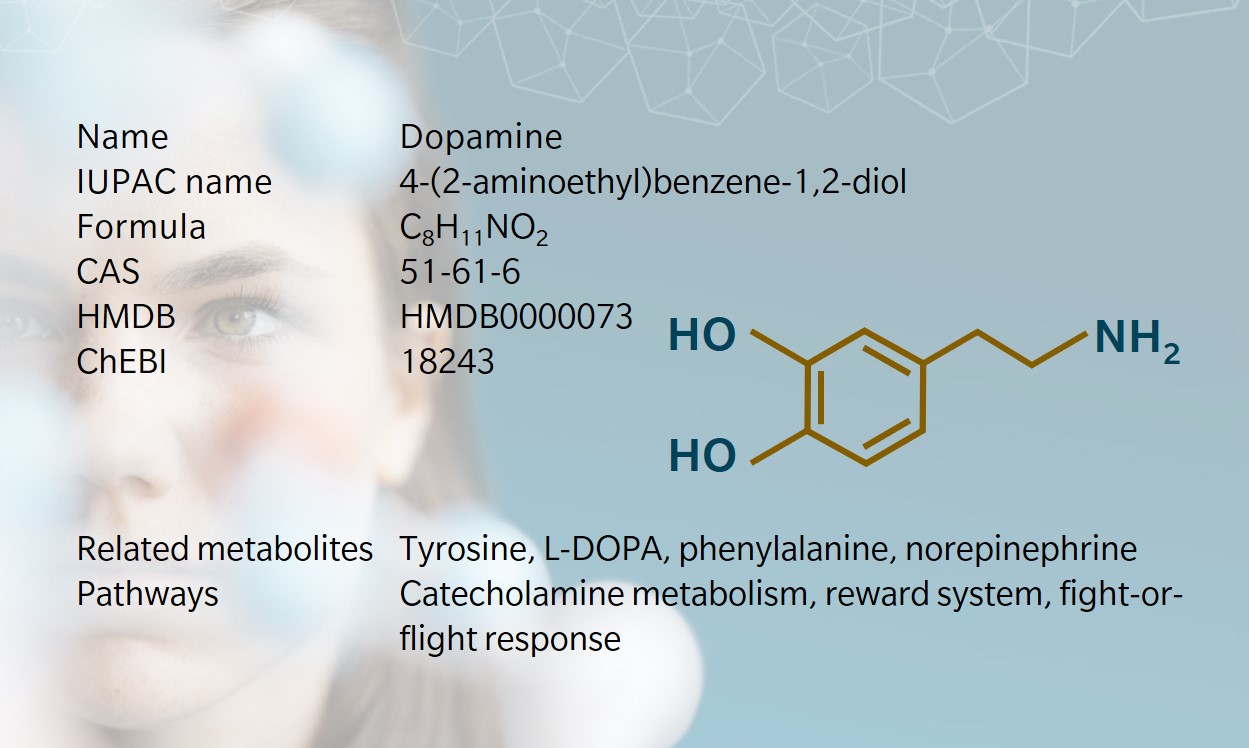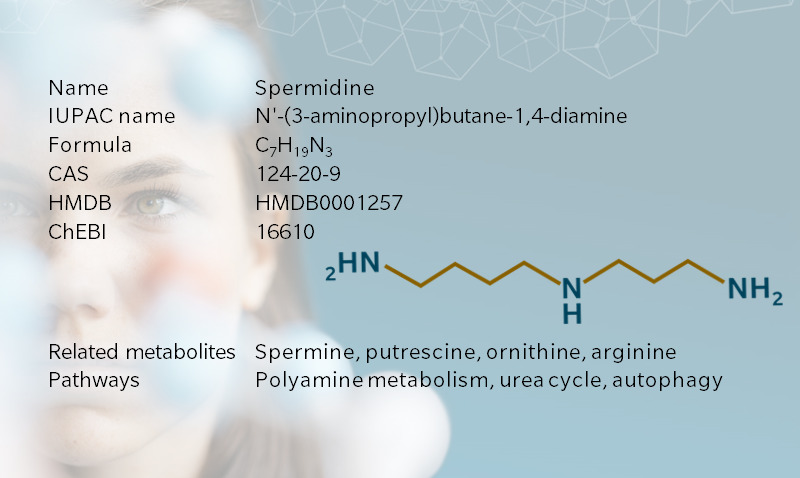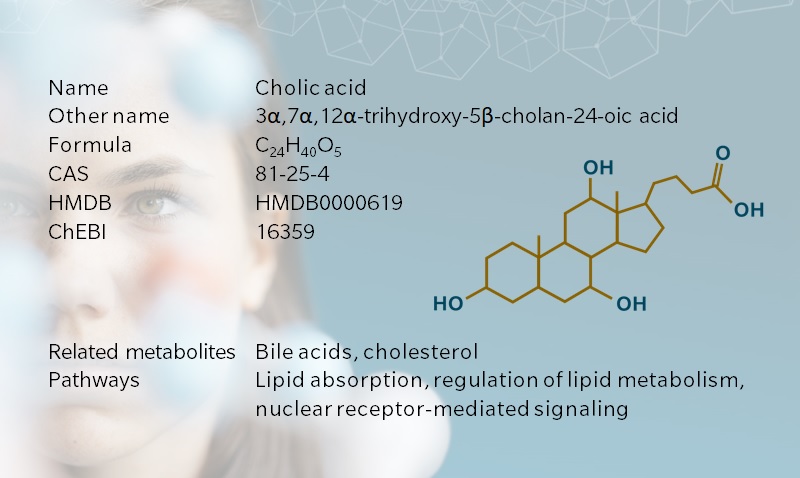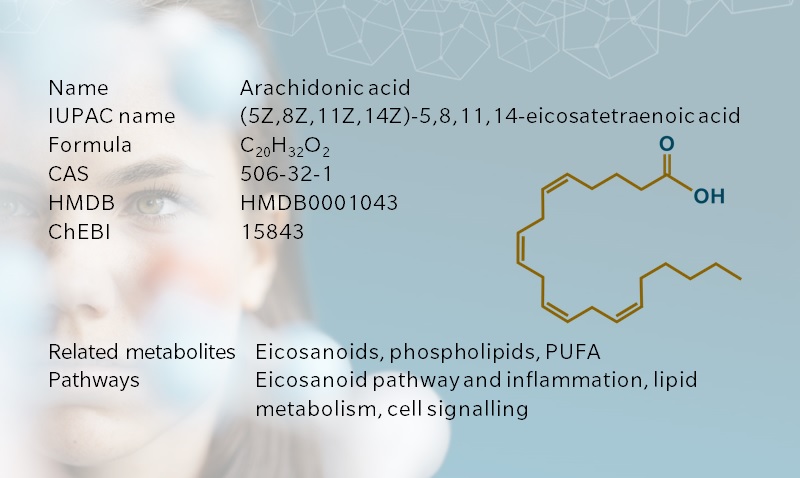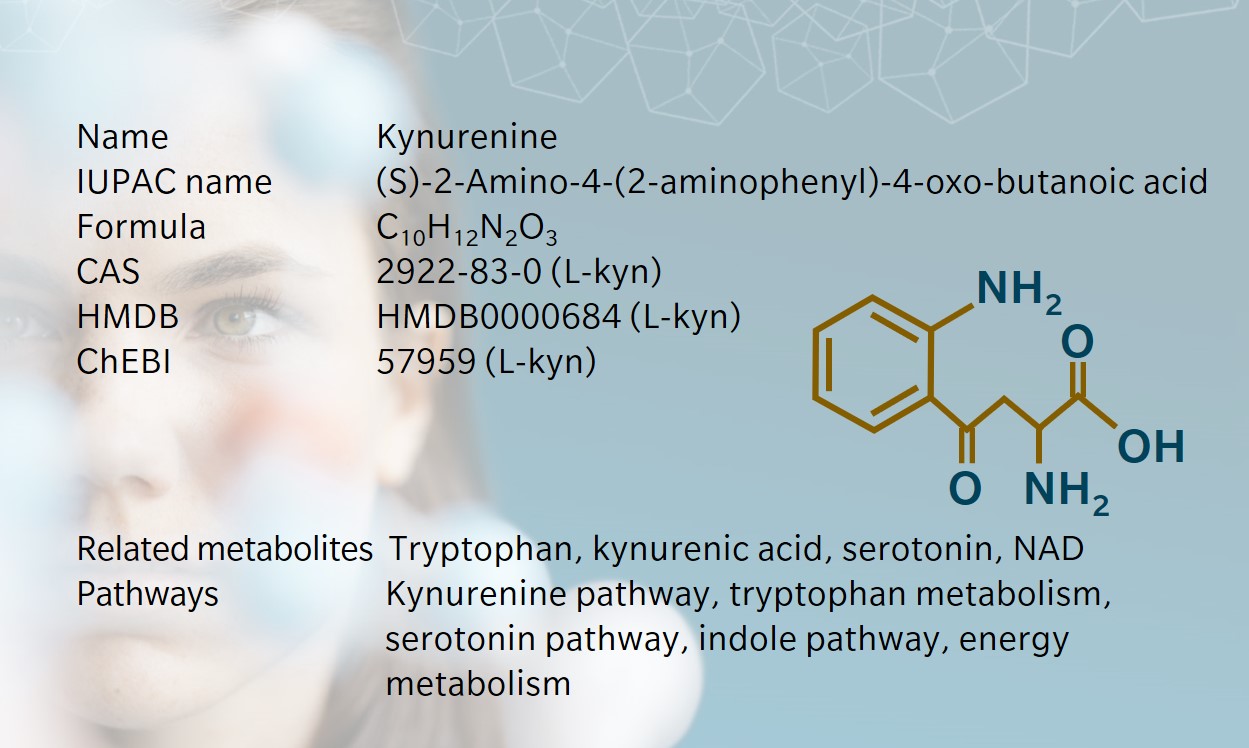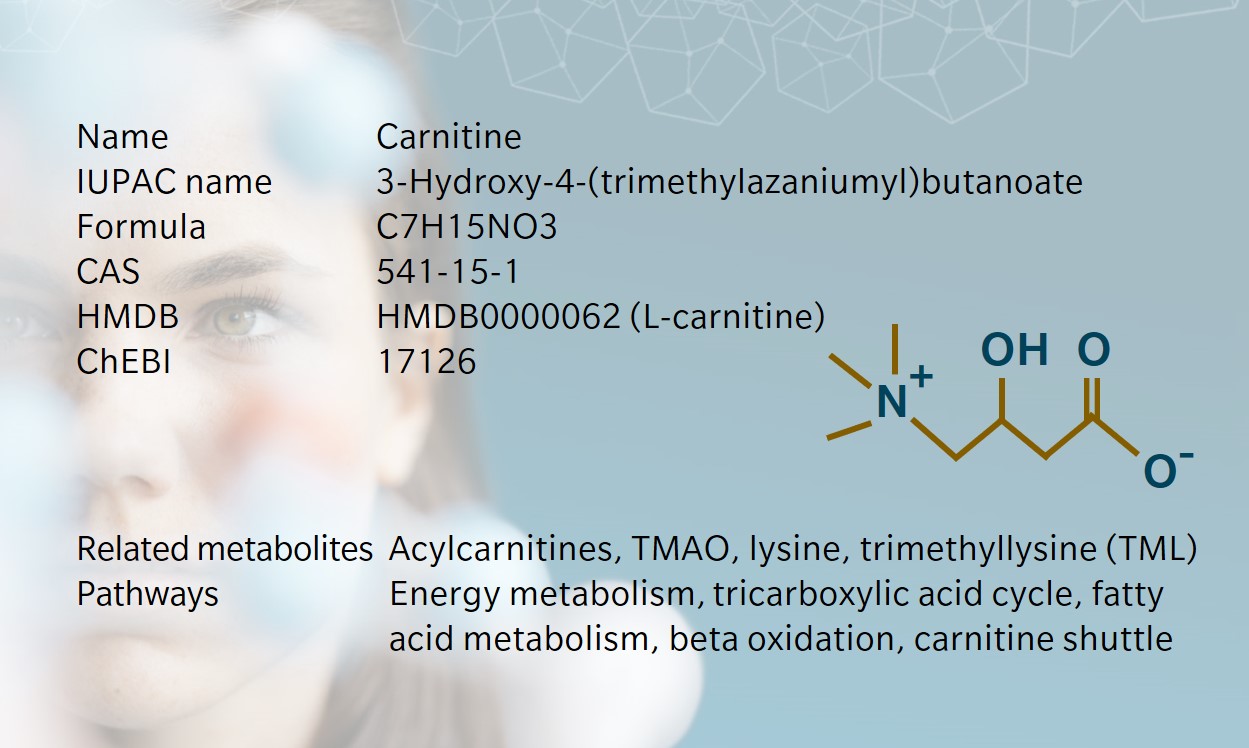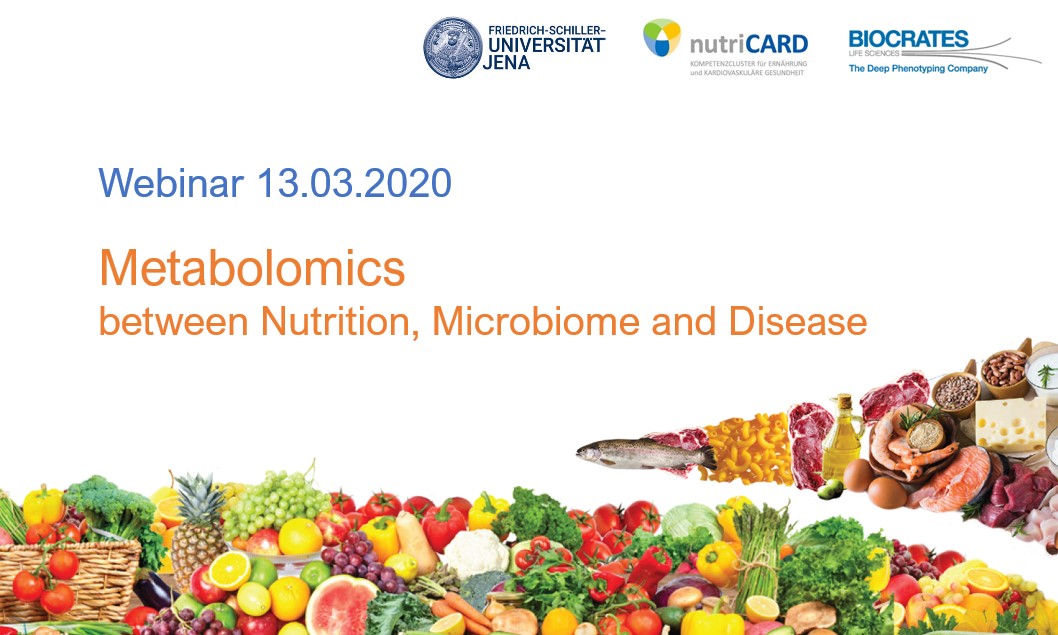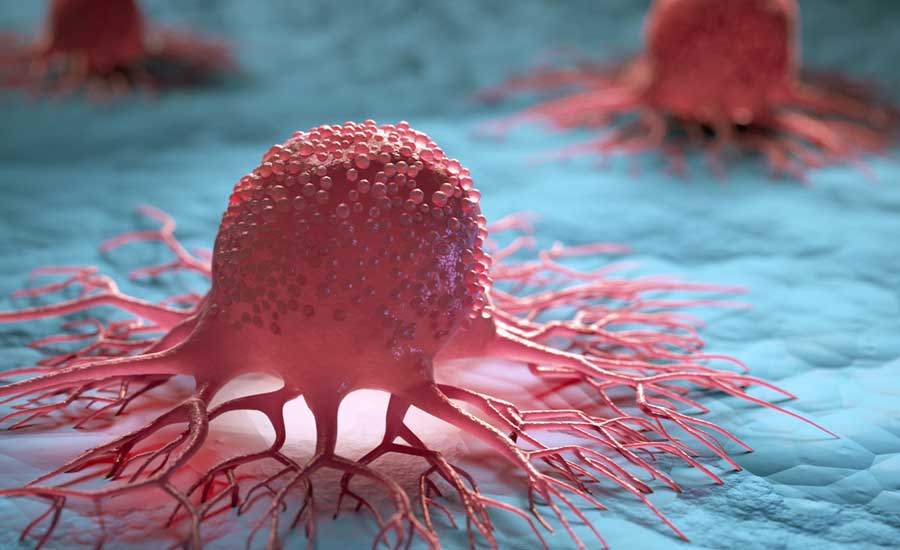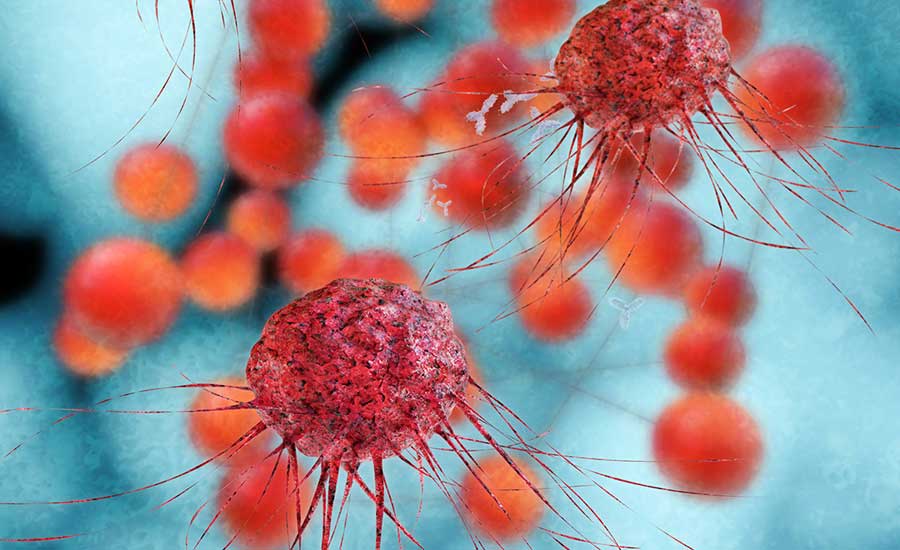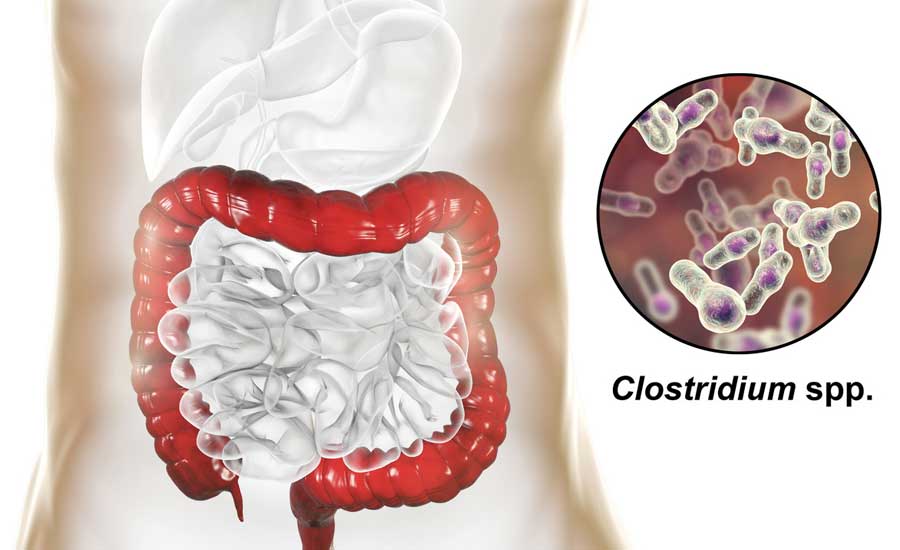Metabolite of the month is your sneak peek into the world of metabolomics. In this month´s article, we took a closer look at inosine.
All posts from
mGWAS – Integrating metabolomics in genome-wide association studies for more precise results
Combining genome-wide association studies (GWAS) with metabolomics and Mendelian randomization is transforming precision medicine by uncovering causal links between genetic variants and clinical outcomes, rather than just correlations.
Methionine – a crucial amino acid in metabolism, antioxidant defense, and cellular function
Learn about methionine, a vital sulfur-containing amino acid essential for protein synthesis, metabolism, antioxidant defense, and cellular health. Discover its dietary sources, impact on health, and role in diverse biological processes
Indoxyl sulfate – Metabolite of the month
Explore the role of indoxyl sulfate, a gut-derived uremic toxin linked to kidney, cardiovascular, and neurological health. Learn about its biosynthesis, impact on chronic disease, and potential as a therapeutic target.
Data interpretation tools to unleash the full impact of metabolomics
In this talk, I will discuss the highs and lows of data interpretation for metabolomists, and share the latest tools provided by biocrates to unleash the full impact of metabolomics for research and health.
Linking your research question to relevant metabolite features in untargeted metabolomics profiles
Metabolomics is vital for understanding biological processes but analyzing complex data is challenging. This talk covers advances in computational tools like FERMO and msFeaST, which streamline data analysis, linking phenotypes to metabolomic profiles.
Metabolomics meets microbiome | Quantify the impact in microbiome research
INSERT EXCERPT
Amino acid auxotrophies in the human gut microbiome
This talk presents a recent study that combined metabolomic, metagenomic, and metabolic modeling to assess the prevalence of bacterial auxotrophies in the human gut and their correlation with the host’s metabolome.
Gut metabolomic changes during pregnancy reveal the importance of GI region in sample collection
Gut regionality is key in physiology studies but often ignored in metabolome research. It’s crucial for understanding metabolic changes, especially during pregnancy.
3 words to capture Metabolomics 2024
ASMS 2024, a main event for the mass spectrometry community, showcased the latest advancements in mass spectrometry and fostered important collaborations in the field of metabolomics.
American Society for Mass Spectrometry (ASMS) – Mass spectrometry and allied topics 2024
ASMS 2024, a main event for the mass spectrometry community, showcased the latest advancements in mass spectrometry and fostered important collaborations in the field of metabolomics.
Kynurenic acid – A neuroprotective metabolite with key roles in brain health and immune function
Metabolite of the month is your sneak peek into the world of metabolomics. In this month´s article, we took a closer look at kynurenic acid, an important neuroactive metabolite synthesized from tryptophan in the human body.
Mass spectrometry in metabolomics – From methodologies to applications
Metabolomics highlights the significant role of microbial communities in human health, driving a paradigm shift towards towards personalized, proactive healthcare.
Butyric acid – A vital short-chain fatty acid for gut health and metabolic wellness
Metabolite of the month is your sneak peek into the world of metabolomics. In this month´s article, we took a closer look at butyric acid, which is one of three common SCFAs in the human gut.
Choline – An essential nutrient for brain function, liver health, and beyond
The metabolite of this month is choline, implicated in various aspects of neurological and cardiovascular health and function.
Does metabolomics have a place in microbiome research?
Metabolomics highlights the significant role of microbial communities in human health, driving a paradigm shift towards towards personalized, proactive healthcare.
Trimethylamine N-oxide (TMAO) – A crucial metabolite linking diet, gut health, and cardiovascular risk
Trimethylamine oxide (TMAO), which has been suggested to be a “bad” metabolite
3-indoleacetic acid (3-IAA) – Exploring its impact on human health and metabolism
The metabolite of this month is 3-IAA, known as the most common plant growth hormone.
p-cresol sulfate – A key uremic toxin with implications for gut health and chronic disease
The metabolite of this month is p-cresol sulfate, a sulfate conjugate of the bacterial metabolite p-cresol, which is a uremic toxin.
The study of pre-diagnostic serum samples from the Norwegian Trøndelag Health Study (HUNT2 study) shows age-dependent differences linked to breast cancer risk
The study analyzed pre-diagnostic serum samples from healthy women in the Norwegian Trøndelag Health Study (HUNT2 study) to identify molecular biomarkers linked to breast cancer risk.
Metabolomics and application in colorectal cancer research
In this presentation Prof. Ose highlights the research conducted by an international consortium focusing on colorectal cancer (CRC) patients at the time of diagnosis.
Metabolomics in the Tohoku Medical Megabank and identification of biomarkers in gynecological cancer
Metabolomics, the comprehensive analysis of metabolites in vivo, has contributed significantly to research on the search for diagnostic biomarkers for various diseases.
Alpha-pinene – The terpene with powerful anti-inflammatory and respiratory benefits
As one of the metabolites responsible for the smell of conifers, alpha-pinene is a fitting choice for our festive Metabolite of the month.
Melatonin – The sleep-regulating hormone with far-reaching health benefits
Our metabolite of the month melatonin is an ancient molecule found in all living organisms from bacteria to humans, with an evolution that can be traced back 2.5 billion years.
Treatment of non-alcoholic fatty liver disease (NAFLD) as a chemopreventive strategy for other chronic disease: a metabolomics perspective
NAFLD is a key player in other chronic diseases – both as a prevalent comorbidity and a contributing factor. Does this mean that treating NAFLD could prevent those conditions?
The fluid of everything – Urine and precision nutrition
How urine metabolomics advances precision nutrition by enabling personalized, effective, and proactive dietary recommendations.
Cinnamaldehyde – The bioactive compound with potent anti-inflammatory and antioxidant properties
In our metabolite of the month series, our scientists look at one specific metabolite each month. Topics of discussion include the biosynthesis and degradation in a broader health context, and the effect of dysregulation. In this month´s article, they took a closer look at Cinnamaldehyde.
Sphingosine-1-phosphate (S1P) – A master regulator in cellular signaling and disease pathways
In our metabolite of the month series, our scientists look at one specific metabolite each month. Topics of discussion include the biosynthesis and degradation in a broader health context, and the effect of dysregulation. In this month´s article, they took a closer look at sphingosine-1-phosphate.
Arginine – Essential amino acid driving nitric oxide production and cardiovascular health
In our metabolite of the month series, our scientists look at one specific metabolite each month. Topics of discussion include the biosynthesis and degradation in a broader health context, and the effect of dysregulation. In this month´s article, they took a closer look at Arginine.
Metabolite of the month – Deoxycholic acid
Our metabolite of the month DCA is a secondary bile acid product. Interest in DCA was revived in the 1940s, when it was identified as a precursor for the synthesis of corticosteroids
biocrates at ASMS 2023
Delve into the firsthand experience of the biocrates team at the ASMS 2023 conference, held in Houston, Texas, with a remarkable attendance of over 5,000 participants.
Metabolomics – (not) a game changer in toxicology?
Why is metabolomics a game-changer in toxicology? We think so, but why are toxicologists split on this question?
Host-microbial interactions as pathophysiological nexus in inflammatory bowel disease
Immunometabolism is an important component to the pathophysiology of inflammatory bowel diseases and thus may serve the purpose of contributing to better and more personalized therapy decisions. While several metabolic pathways contribute, the talk puts special emphasis on the metabolism of the essential amino acid tryptophan.
Microbiota-derived 3-IAA influences chemotherapy efficacy in pancreatic cancer
Pancreatic ductal adenocarcinoma (PDAC) is expected to be the second most deadly cancer by 2040, owing to the high incidence of metastatic disease and limited responses to treatment. Less than half of all patients respond to the primary treatment for PDAC, chemotherapy, and genetic alterations alone cannot explain this. Using shotgun metagenomic sequencing and metabolomic screening, we show that the microbiota-derived tryptophan metabolite indole-3-acetic acid (3-IAA) is enriched in patients who respond to treatment.
Metabolomics as a tool to stratify patients and guide therapeutic decisions
Metabolomics can be used to develop tools to help guide therapy decisions in multiple ways, e.g. predict whether a drug will be effective, choose the best course of therapy, or monitor therapies along the patient journey.
Alpha-aminoadipic acid – Metabolite of the month
Aminoadipic acid is an alpha amino acid, meaning its amino group is attached to the carbon atom in the alpha position. It’s a nonproteinogenic amino acid found in all eukaryotes.
Cell culture metabolomics – The shortcut to drug development
Cell culture metabolomics is an excellent tool to decrease drug development costs while increasing speed and success rate. Its applicability has been proven in numerous studies.
Metabolite of the month – Aminobutyric acids
Alpha-, beta- and gamma-aminobutyric acids (AABA, BABA and GABA) are a group of structurally similar nonproteinogenic amino acids.
Pan-cohort studies – The future of population health
With the second edition of this cohort event Pan-cohort studies – The future of population health- we are looking forward to expand into the physical spaces and stretch the scope beyond metabolomics.
WebIDQ the new evolution. Why the transition from MetIDQ?
During this webinar you can learn about WebIDQ, the next evolution of biocrates’ metabolomics workflow management and data processing software. With an intuitive user interface, WebIDQ guides users from sample registration through quantification and reporting.
Quantitative metabolomics database (QMDB)
During this webinar you can learn the benefits and possibilites of using the biocrates Quantitative metabolomics database (QMDB)
Histamine – Metabolite of the month
Histamine stimulates smooth muscle contraction, vasodilation, and gastric acid secretion, and plays a role in cell differentiation, proliferation and regeneration
Metabolite of the month – Glycine
Glycine plays a role in metabolic regulation, neurological function, anti-oxidative reactions and protein synthesis. It offers multiple health benefits that may help to treat diabetes, cardiovascular disease, cancer, inflammation and obesity.
Short- and medium-chain fatty acids
During this webinar you can learn how microbiota impact the gut-immune axis through short- and medium-chain fatty acids
Advancing cancer treatment by targeting dysregulated metabolism – A roadmap
Cancer cells adjust metabolic program to their specific energy needs in response to challenging microenvironment, which frequently results in cancer cell “addiction” to certain metabolic pathways. Those “addictions” could be deployed as treatment targets. Metabolic profiling by providing quantitative measure of metabolic processes offers attractive strategy for investigation of not only cancer cells “addictions” but also metabolic switches contributing to treatment resistance.
3 assets needed to excel at metabolomics data interpretation
Data interpretation is often overlooked in omics training. But without knowing how to make sense of our results in the...
Ornithine – Metabolite of the month
Our metabolite of the month is Ornithine, a non-essential, non-proteinogenic amino acid that plays an essential role in the urea cycle.
Phosphatidylethanolamines – Key lipids in cellular function and membrane integrity
Phosphatidylethanolamine (PE) is a sub-class of phospholipids with a variety of functions in animals, plants and microorganisms. Like other phospholipids, PEs are more than simply the building blocks of membranes
Metabolite – 3-Hydroxy Glutaric Acid (A biomarker for a rare disease)
3-hydroxyglutaric acid is a little known metabolite with great application for the diagnosis of a rare disease.
ICYMI – Recap from “Pan-cohort studies – the future of population health” symposium
With more than 20 hours of cutting-edge science in the rearview mirror, it’s time to reflect on our recent “Pan-cohort studies – The future of population health” event.
Lactic acid – Metabolite of the month
Lactic acid is produced by various cells in the body, including muscle cells, red blood cells and neurons
Which sample matrix should I use for my metabolomics study?
While there’s no single correct approach to figuring out your sample matrix, there certainly are things that could be done wrong. Here, we dive into some of the advantages and advantages of the sample matrices you might consider for you metabolomics study.
NAD+ (nicotinamide adenine dinucleotide) – Metabolite of the month
NAD is best known as a master regulator of redox reactions, but it is also a substrate used by many enzymes to fine tune cell biology.
MxP® Quant 500 kit for SCIEX 7500 LC-MS/MS systems
MxP® Quant 500 targeted metabolomics kit is now validated for use with SCIEX 7500 LC-MS/MS systems
Importance of pre-analytics for metabolomics studies
Pre-analytics influences metabolite concentrations. Adherence to standardized sample collection and storage protocols is crucial for reliable metabolomics data
Happy birthday biocrates
This summer, biocrates celebrates 20 years at the forefront of metabolomics. To mark the occasion and take a look back over the highlights of the last two decades, the global team got together in Innsbruck in July.
Metabolite of the month – Tryptophan
Tryptophan is a pivotal metabolite in nutrition, inflammation and the gut-brain-axis. This is an overview of what is known about this amino acid although much is left..
Metabolomics 2022 in person
In this article we share our take-aways and experience from Metabolomics 2022 in Valencia. We summarized not only exciting talks, posters and trends but also the thrill of meeting with the metabolomics community in person again.
Cholesterol – Metabolite of the month
Metabolite of the month is your sneak peek into the world of metabolomics. In this month´s article, we took a closer look at cholesterol..
How to tackle health issues in animal husbandry?
Metabolomics contributes to advances in sustainable, productive livestock animal husbandry and animal welfare based on the assessment of health of farm animals.
Asymmetric dimethyl arginine (ADMA) – Metabolite of the month
Metabolite of the month is your sneak peek into the world of metabolomics. Topics of discussion include the ..
Adverse effects in immunotherapy
Only 20–30 % of patients experience a long-term benefit from immunotherapy, but the high rate of adverse events in immunotherapies is also a matter of intense research and scientific debate
Cortisol – Metabolite of the month
Metabolite of the month is your sneak peek into the world of metabolomics. In this month´s article, we took a closer look at cortisol, a steroid hormone involved in stress response and beyond.
Phosphatidylcholines – Metabolite of the month
Metabolite of the month is your sneak peek into the world of metabolomics. In this month´s article, we took a closer look at phosphatidylcholines, a class of lipids involved in much more than membrane composition.
Therapy resistance: could metabolomic biomarkers remove this major roadblock to successful pharmaceutical research and development programs?
Pharmaceutical therapies have created huge benefits for society in expanding healthy life span
The winners of the biocrates publishing awards
The biocrates publishing awards recognize the outstanding scientists who are using biocrates technology to make groundbreaking discoveries in the world of metabolomics and beyond.
Indole – Metabolite of the month
Metabolite of the month is your sneak peek into the world of metabolomics. In this month´s article, we took a closer look at indole, a product of tryptophan..
The Metabolomist
The Metabolomist is a podcast for metabolomics researchers to connect with like-minded scientists and explore the unspoken issues in metabolomics research.
Introducing the biocrates publishing awards
The biocrates publishing awards recognize the outstanding scientists who are using biocrates technology to make groundbreaking discoveries in the world of metabolomics and beyond.
Leucine – Metabolite of the month
Metabolite of the month is your sneak peek into the world of metabolomics. This month, we look at leucine, an amino acid involved in energy metabolism, autophagy, and more.
Using MxP® Quant 500 kit with Agilent 6495B and 6495C TQ LC/MS systems
Using biocrates MxP® Quant 500 kit for broad metabolic profiling with the Agilent 6495C triple quadrupole LC/MS system
Sphingomyelins – Metabolite of the month
Metabolite of the month is your sneak peek into the world of metabolomics. In this month´s article, we took a closer look at sphingomyelins, building blocks of eukaryotic cell membranes, play in cell signaling, growth, and survival.
The 8th Munich Metabolomics Symposium
Recap of the 8th Munich Metabolomics Symposium, November 12th, 2021
Metabolomics unravels aspects of Alzheimer’s disease
Metabolites and genetic markers help to enlighten aspects of Alzheimer’s disease
Short-term air pollution alters amino acid metabolism
Well-defined exposure to air pollution reveals distinct perturbations of amino acid metabolism
Are effects of antibiotics reflected in the metabolome?
Antibiotics influence the gut microbiome and the plasma or fecal metabolome depending on the class of antibiotics and the gut bacterial composition.
Prediction of bladder cancer progression
A multi-OMICS approach identified metabolic signatures related to fatty acid oxidation in bladder cancer progression.
Targeted metabolomics as a tool to monitor sow and piglet health in swine breeding
Metabolomics helps detect potentially catastrophic health issues in pregnant sows and weaning piglets
Isovaleric acid – Metabolite of the month
Metabolite of the month is your sneak peek into the world of metabolomics. In this month´s article, we took a closer look at Isovaleric acid, a five-carbon branched ..
Cholesterol metabolism in Alzheimer’s disease
Brain cholesterol metabolism is altered in Alzheimer’s Disease.
Why you should combine analysis of short-chain fatty acids (SCFAs) and medium-chain fatty acids (MCFAs)
Short-chain fatty acids (SCFAs) and medium-chain fatty acids (MCFAs) are well-established as important diet-based energy sources.
Triglycerides – Metabolite of the month
Metabolite of the month is your sneak peek into the world of metabolomics. In this month´s article, we took a closer look at Triglycerides, complex molecules used ..
Alterations in metabolism might cause chronic kidney disease
Chronic kidney disease and impaired renal function shown to be associated with a variety of metabolites, suggesting the involvement of several metabolic pathways in the disease pathophysiology.
Metabolic effects of anti-TNF α therapy
Anti-TNF α therapy in Crohn´s Disease improves liver steatosis through changes in gut bacteria and triglycerides.
Metabotypes applied to dairy production
Metabotypes help categorize dairy cows with different lactation yields
MetaboINDICATOR™
MetaboINDICATOR™ - Translate metabolomics & lipidomics into knowledge Making the most of metabolomics data Alice...
Pharmacometabolomics provides biomarkers for precision medicine
A combination of various technologies in pharmacometabolomics enables biomarker discovery for prediction of drug responses of individual patients.
Distinct metabolic alterations in cancer- and chemotherapy-induced cachexia
Cancer in comparison to chemotherapy cause distinct metabolic perturbations, which both lead to the development and progression of cachexia characterized by extreme weight loss and muscle wasting.
How different sports shape the blood metabolome
The metabolome differentiates athlete phenotypes
Effect of proton pump inhibitor use on development of cardiovascular diseases
Population-based cohort study reveals link between proton pump inhibitor intake and increasing risk for cardiovascular events.
Irritable bowel syndrome linked to distinct metabolic profile
A metabolic pattern of patients with irritable bowel syndrome (IBS) was identified, providing the key to non-invasive IBS diagnostics.
Dyslipidemia contributes to cardiac autonomic neuropathy in type 2 diabetes
Cardiac autonomic neuropathy is linked to perturbations of the lipid metabolism specifically in Type 2 Diabetes.
Using MxP® Quant 500 kit with Agilent 6495C TQ LC/MS systems
Using biocrates MxP® Quant 500 kit for broad metabolic profiling with the Agilent 6495C triple quadrupole LC/MS system
Creatinine – Metabolite of the month
Metabolite of the month is your sneak peek into the world of metabolomics. This month we took a closer look at creatinine, a non-protein nitrogenous waste product generated during energy breakdown in muscles.
Metabolism of fatty liver disease and the impact of therapy
New study demonstrates the power of metabolomics in boosting our understanding of fatty liver disease – and possible treatments. Obeticholic acid reverses metabolic changes in NASH.
Lipid biomarkers improve diagnosis of bacterial meningitis
Free phosphatidylcholines in cerebrospinal fluid are highly promising biomarkers for an improved differential diagnosis of bacterial meningitis.
Metabolomics can help identify root causes of hypertension
Targeted metabolomics discriminates between primary and endocrine hypertension.
New analytical method for the quantification of acylcarnitines
Acylcarnitine profiles of melanoma xenografts in mice could be a step towards a new treatment.
Multi-omics reveals new insights into chronic malarias
Host-parasite interactions in chronic and acute malaria were characterized by metabolomics and transcriptomics in macaques and humans.
Elevated liver fat content disrupts the liver-α cell axis
Elevated liver fat is related to hyperglucagonaemia, which reflects the disruption of the liver-α cell axis.
Taurine – Regulator of cellular function
Metabolite of the month is your sneak peek into the world of metabolomics. In this month´s article, we took a closer look at Taurine, the most abundant intracellular amino acid in the human body.
Defining the biochemistry of obesity
Increasing degree of metabolic dysregulation visible in the blood metabolome depending on the degree of obesity.
How bile salt hydrolases affect the gut microbiome
Bile acid composition and a complex network of bile salt hydrolases in the gut shape microbial colonization.
Metabolite of the month – Dopamine
Metabolite of the month is your sneak peek into the world of metabolomics. This month discover dopamine, a link between memory, blood pressure, and music.
Metabolomics reveals link between adipose tissue and severe COVID-19
A lipid signature is associated with disease severity and inflammatory status in patients with COVID-19.
Prenatal PFAS exposure leads to liver injuries in children
HELIX metabolomics study links prenatal PFAS (perfluoralkyl substances) exposure to metabolic origin of liver injuries in children.
Mechanism of gallstone formation
Chromatin mesh of specific immune cells aggregates bile crystals to gallstones and might constitute a promising pharmacological target against gallstone formation.
7 tips to make your first metabolomics project successful (with story)
To obtain optimal results from your metabolomics project you might want to answer these seven questions to increase your success.
Modulating gut microbiota with prebiotics could control type 2 diabetes
Modulation of gut microbiota with prebiotic Fructooligosaccharides (FOS) led to discovery of two novel enterosynes (12-HETE and enkephalin), with potential to control type 2 diabetes
Commentary – A current view on steroid hormones
Although they are only present in low concentration in our bodies, steroid hormones play a crucial role in a variety of biological processes. This article reflects recent studies on the topic.
Giardia lamblia alters bile acid secretion in mice
A neonatal mouse model demonstrated that G. lamblia infection altered the composition of the gut microbiome and enhanced bile acid secretion and deconjugation.
Spermidine : Unlocking the secrets of cellular aging and longevity
The metabolite of this month is spermidine, a biogenic amine with applications in cancer, neurology and hair research.
Blood-based score objectively captures dietary patterns
A blood-based predictive metabolomics score provides a tool linking dietary patterns to risk of diabetes that can be used to objectively assess dietary intake.
Circulating metabolites shed light on mechanism of action
The changes in circulating metabolites induced by a multi-AGC kinase inhibitor in mice and patients may contribute to better understand its mechanism of action.
Pan-Cohort Metabolomics – The future of population health
Epidemiological research contributes greatly to our understanding of what constitutes healthy aging. Cohort studies hold the key to identifying risk factors for common diseases. Metabolomics is a valuable tool to make cohort studies successful.
Cholic acid – a signaling molecule
The metabolite of this month is cholic acid, of the the bile acid class. Notorious for their role in digestion, they are also powerful regulators of metabolism.
Arachidonic acid – Essential fatty acid with key roles in inflammation and cell signaling
The metabolite of this month is arachidonic acid, a polyunsaturated fatty acid at the crossroads between inflammation, athlete training and the latest COVID-19 research.
Metabolomic profiling and the prediction of 90-day mortality
Plasma lipid profiling for the prognosis of 90-day mortality, in-hospital mortality, ICU admission, and severity in bacterial community-acquired pneumonia (CAP)
COVID-19 – Metabolomics prediction of long-term outcome
Those who recover from COVID-19, especially after severe cases, have experienced a great deal of pain and discomfort. However, because of potential multi-organ injuries that more closely resemble the situation after sepsis rather than recovery from an Influenza virus infection, COVID-19 survivors often experience long-term consequences of the infection.
COVID-19 Utility of animal models
The global impact of the COVID-19 pandemic has prompted collaborative research efforts across the world. Thus far, the bulk of these efforts have been geared towards vaccine development and discovery of therapeutic strategies that mitigate disease severity.
Metabolomics and response to SARS-CoV-2 vaccination
While vaccine development has been faster than for any previous emerging infectious disease, the next big challenge will be the logistics of producing and distributing hundreds of millions of doses.
Kynurenine metabolites mediate neuromuscular dysfunction
Accumulation of neurotoxic kynurenine metabolites with aging represents the mechanism of neuromuscular defects linking chronic inflammation to physical frailty.
Metabolic interaction of COVID-19 and metabolic diseases
It is well established that within the context of infectious diseases, both host and pathogen impact each other’s metabolism. Viral diseases, such as COVID-19, perfectly exemplify this, as the virus hijacks host cells in order to survive and replicate.
Kynurenine – Metabolite of the month
Kynurenine is a tryptophan-derived metabolite at the crossroads between neurology, immunology and cancer
Circulating metabolites predict coronary heart disease risk
Serum metabolites were associated with risk of coronary heart disease in a population-based cohort, with a comparable strength to classic risk factors.
Carnitine – Metabolite of the month
Metabolite of the month is your sneak peek into the world of metabolomics. This month we look at carnitine #loveyourmetabolites
Elevated serum bile acid levels contribute to NASH-HCC
Higher serum bile acid levels and an altered gut microbiome contribute to fibrogenesis, liver injury, and tumorigenesis in cirrhotic and noncirrhotic NASH-HCC.
Is Alzheimer’s a metabolic disease?
Alzheimer’s disease (AD) has many facets. Metabolomics supports Alzheimer’s early diagnosis and research on the treatment of AD.
Therapy response monitoring in infectious diseases
Monitoring COVID-19 patient’s pathophysiology using metabolomics can lead to early detection of therapy response, opening an avenue to precision medicine.
Metabolomics and COVID-19
Monitoring COVID-19 patient’s pathophysiology might lead to early detection of therapy response, opening an avenue to precision medicine. Metabolomics is a tool to support these efforts.
Amino acids aid in diagnosis of tuberculosis infection
Amino acids were identified as serum biomarkers for the diagnosis of patients with active tuberculosis infection in a targeted metabolomics study.
Webinar report – Metabolomics, Nutrition, Microbiome
“Metabolomics – between Nutrition, Microbiome, and Disease” demonstrates that metabolomics is a powerful tool to study host-microbiota-diet interactions
Make sure your drug fits to your cancer
The response of cancer cells to checkpoint inhibition therapy can be predicted using metabolomics.
A metabolic profile of all-cause mortality risk
To predicting life expectancy standardized and reproducible scientific methods are needed. Metabolomics is one way to approach this question.
Serine – nonessential for you, but essential for cancer
One of the widely accepted hallmarks of cancer is metabolic deregulation. By integrating transcriptome, proteome, and metabolome analysis insights on cancer can be gained.
Metabolomics can indicate favorable response to microbiota transfer
The study of the microbiome is a vital part of personalized medicine. Targeted metabolomics supports patient stratification in Clostridiodes patients.
Metabolomics of acute heart failure
Acute and chronic heart failure can be studied using metabolomics. The metabolic phenotype (especially lipids/ amino acids) rapidly changes upon these condition
Upcoming events

2023©biocrates life sciences ag
All rights reserved
Privacy & Policy
Imprint
Terms & Conditions
Products
Targeted profiling kits
MxP® Quant 500
MxP® Quant HR Xpress™
AbsoluteIDQ® p400
HR AbsoluteIDQ® p180
Pathway specific kits
AbsoluteIDQ® Stero17
AbsoluteIDQ® Bile Acids
All biocrates products and services are intended
For research use only | not for use in diagnostic procedures.

